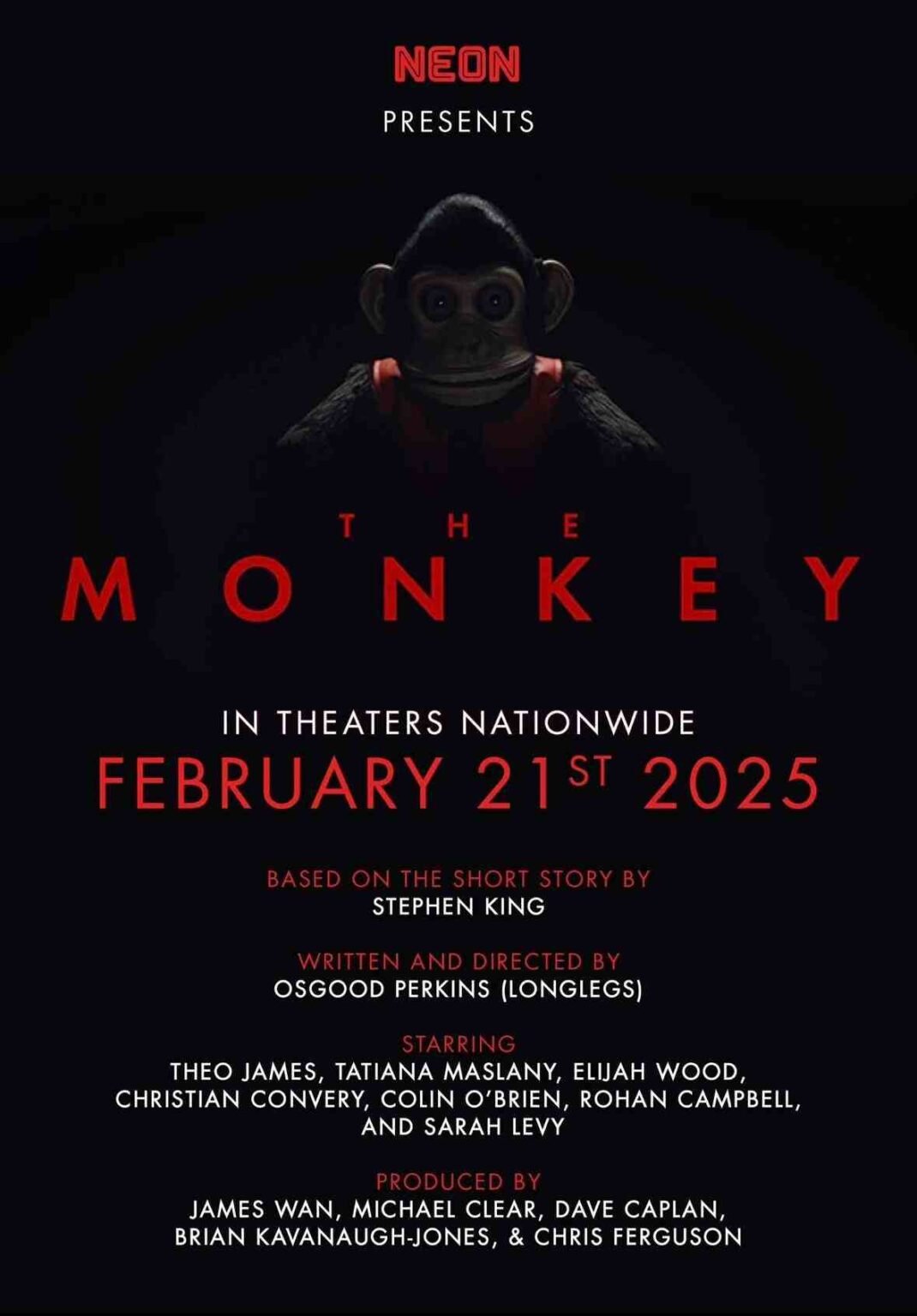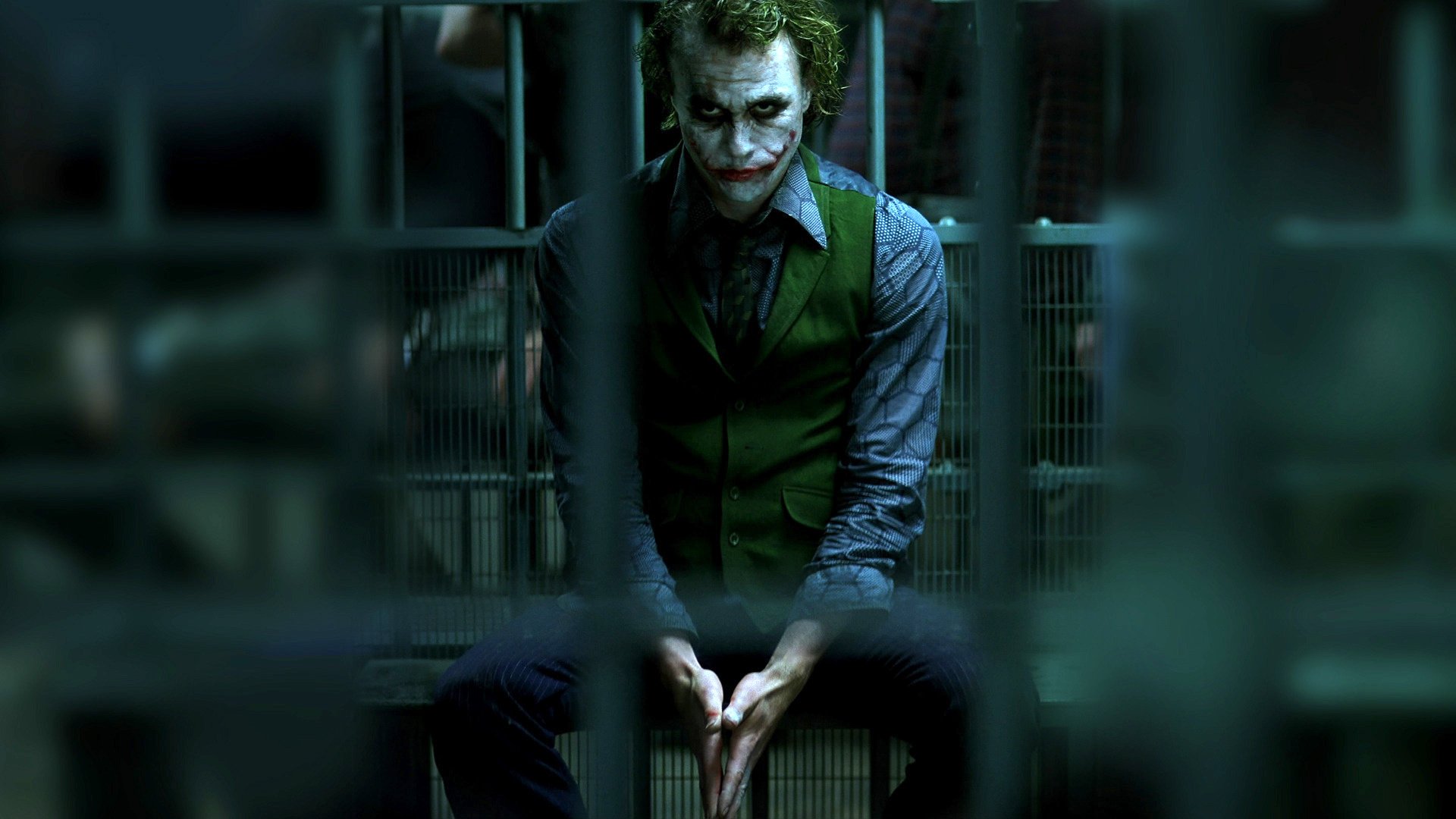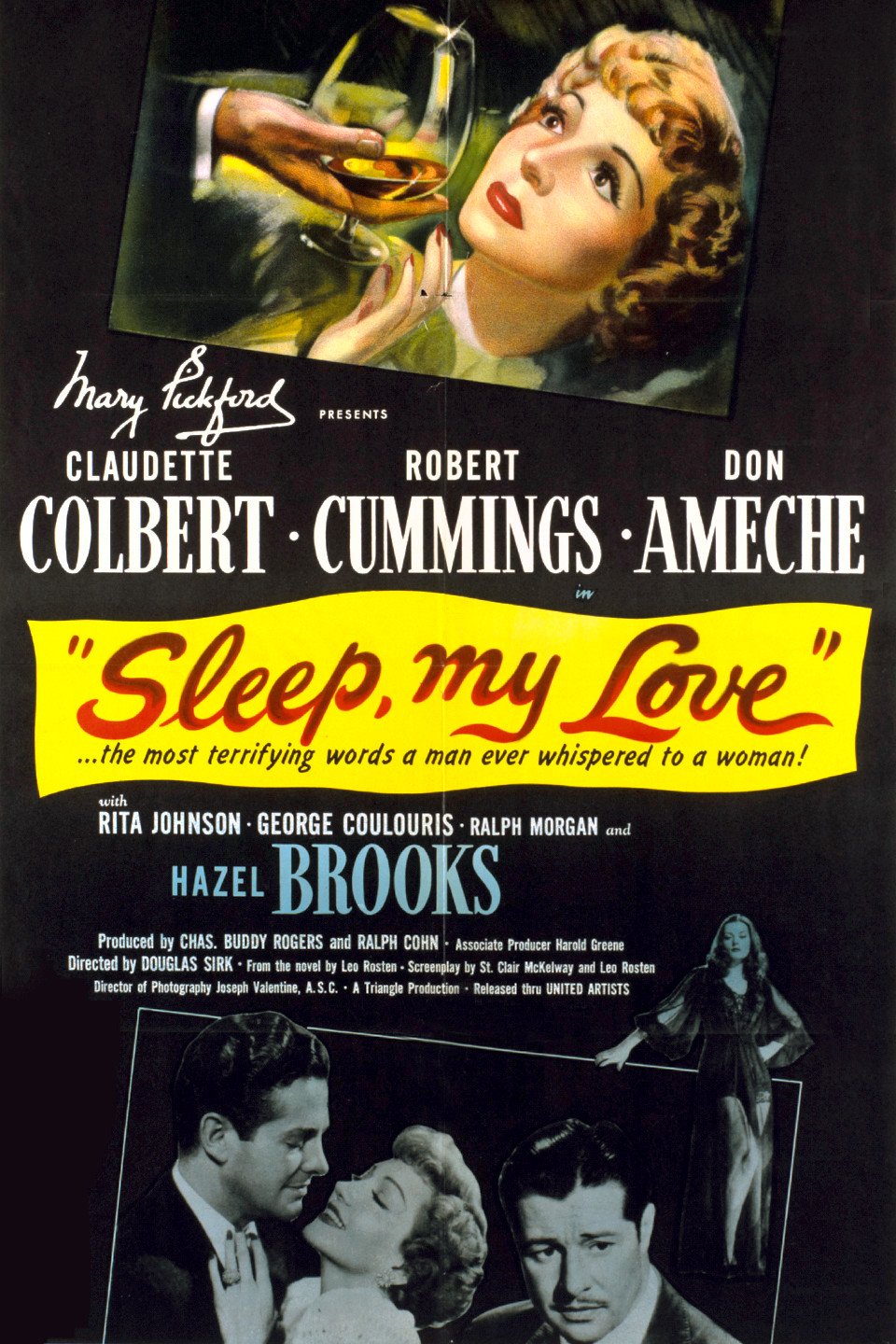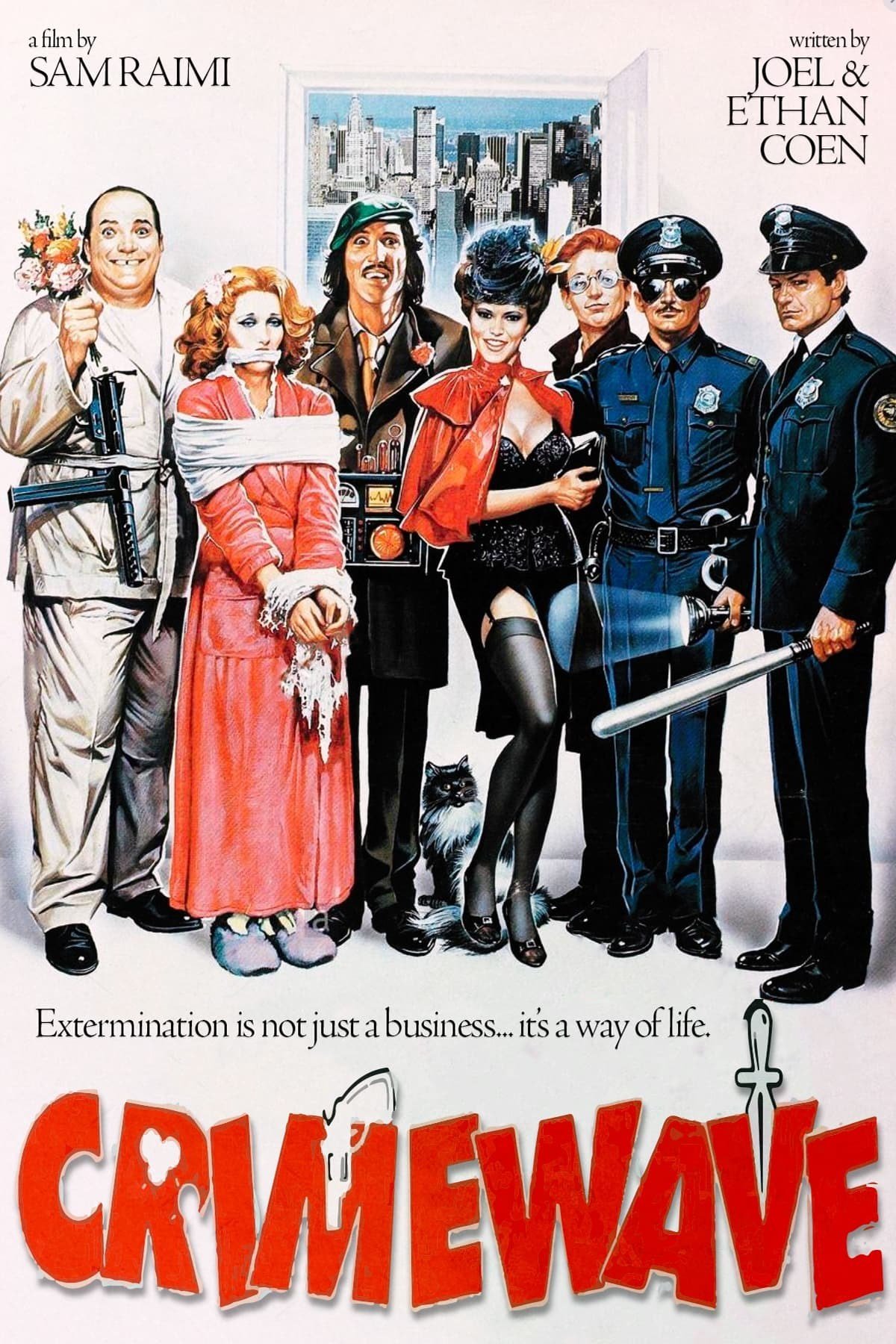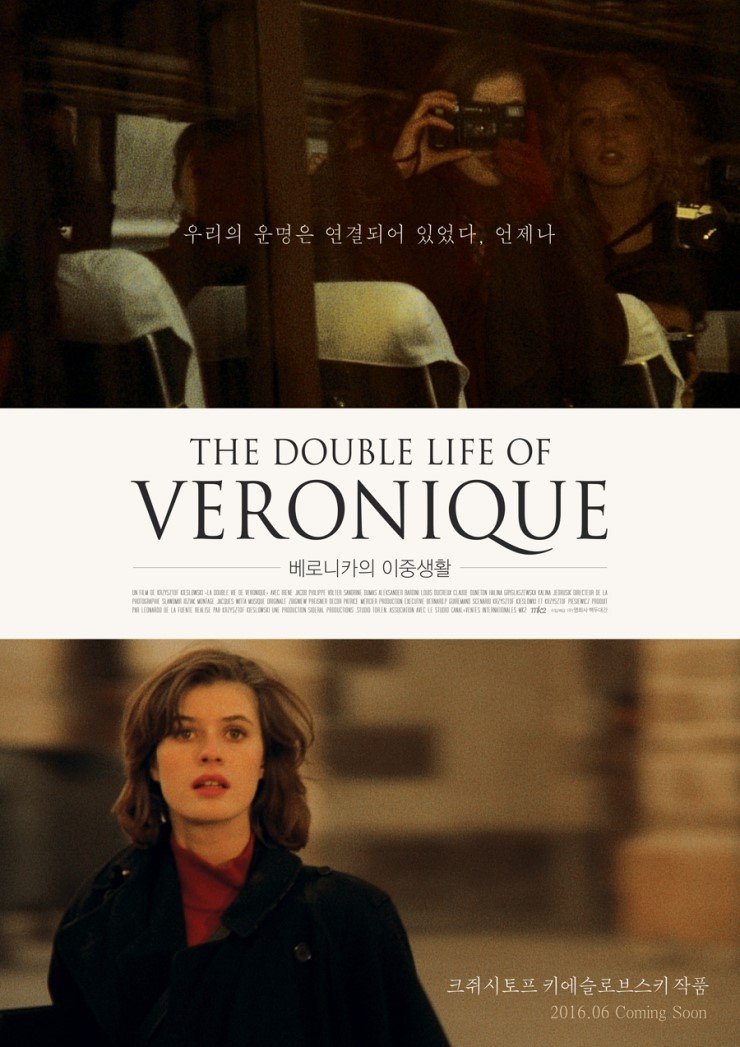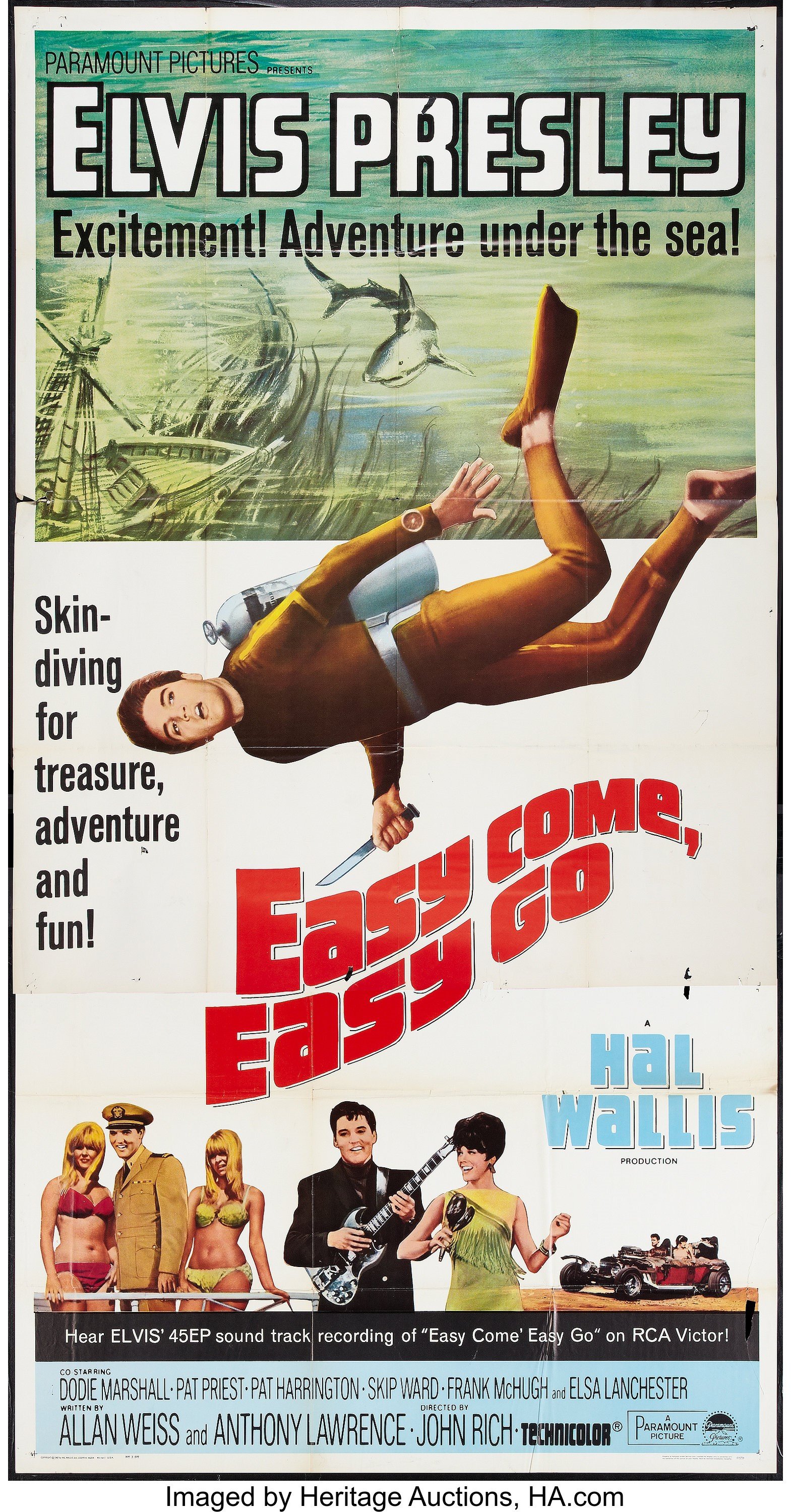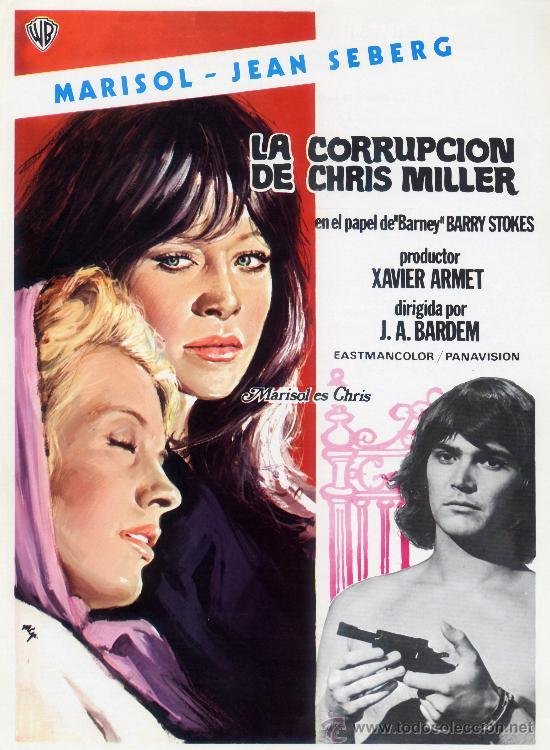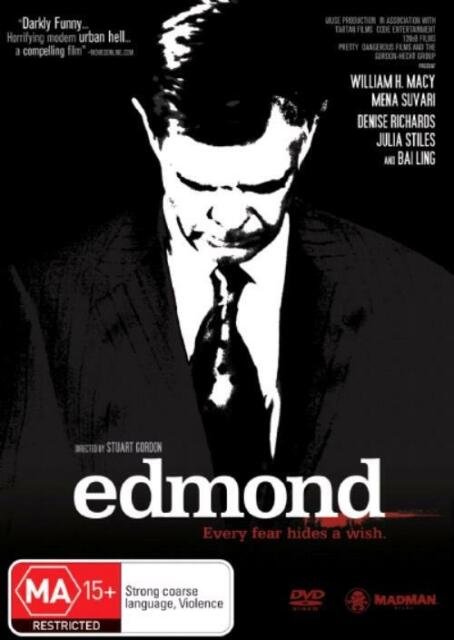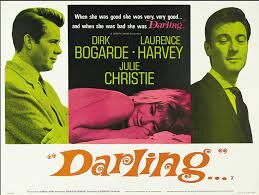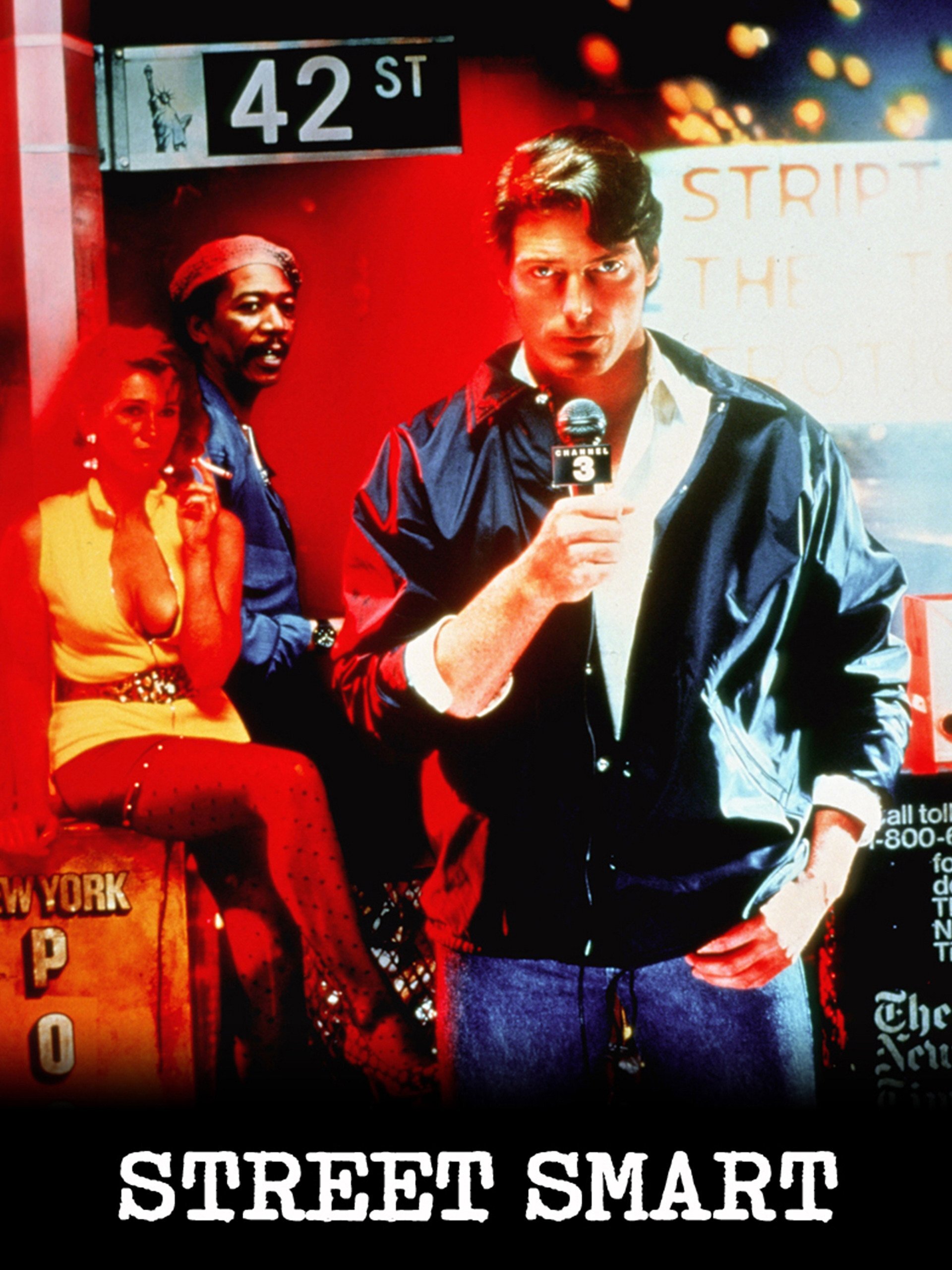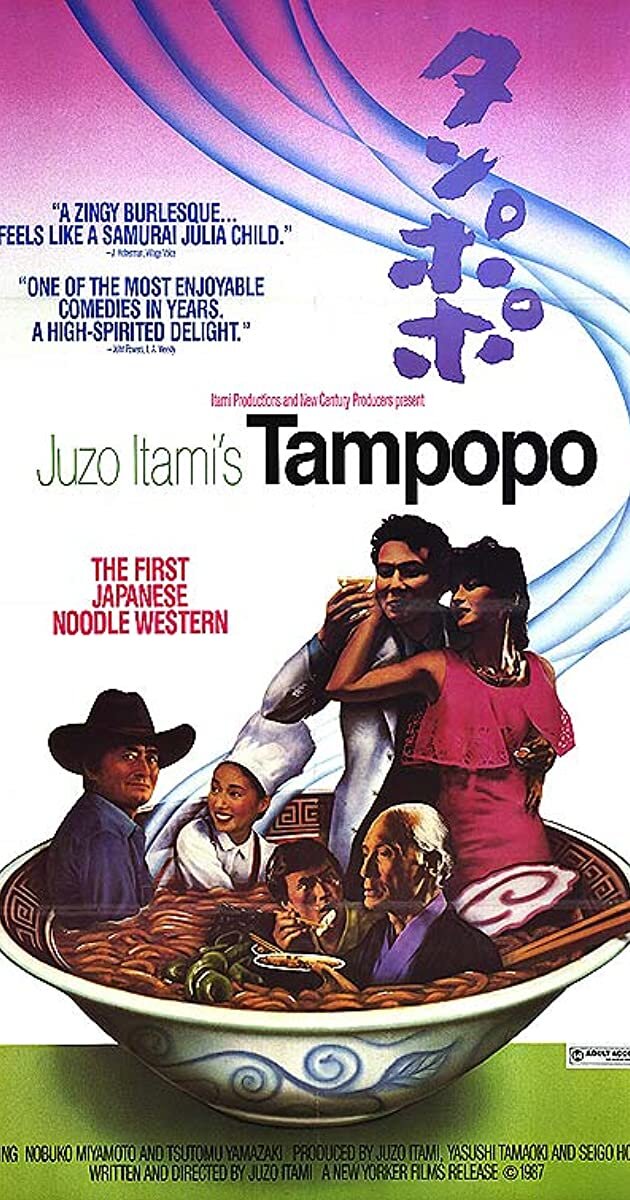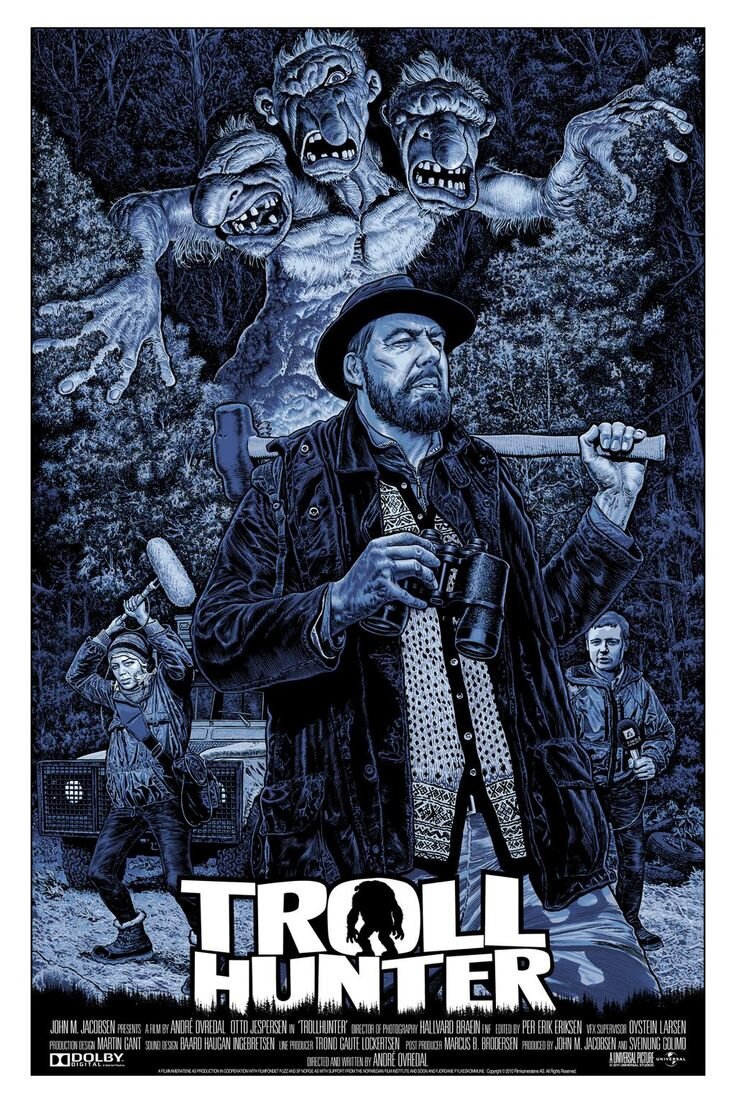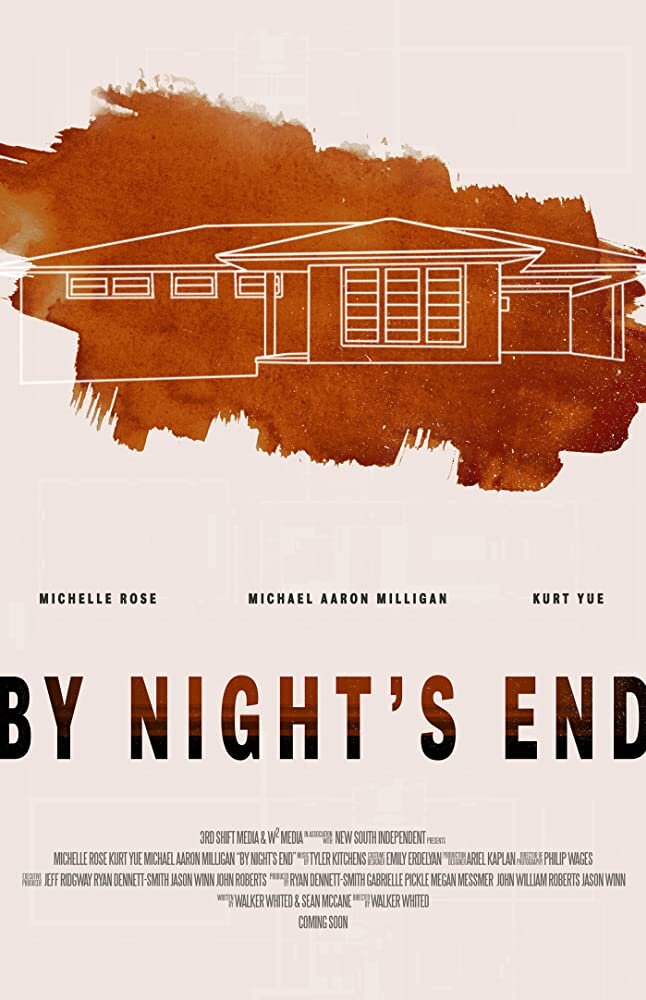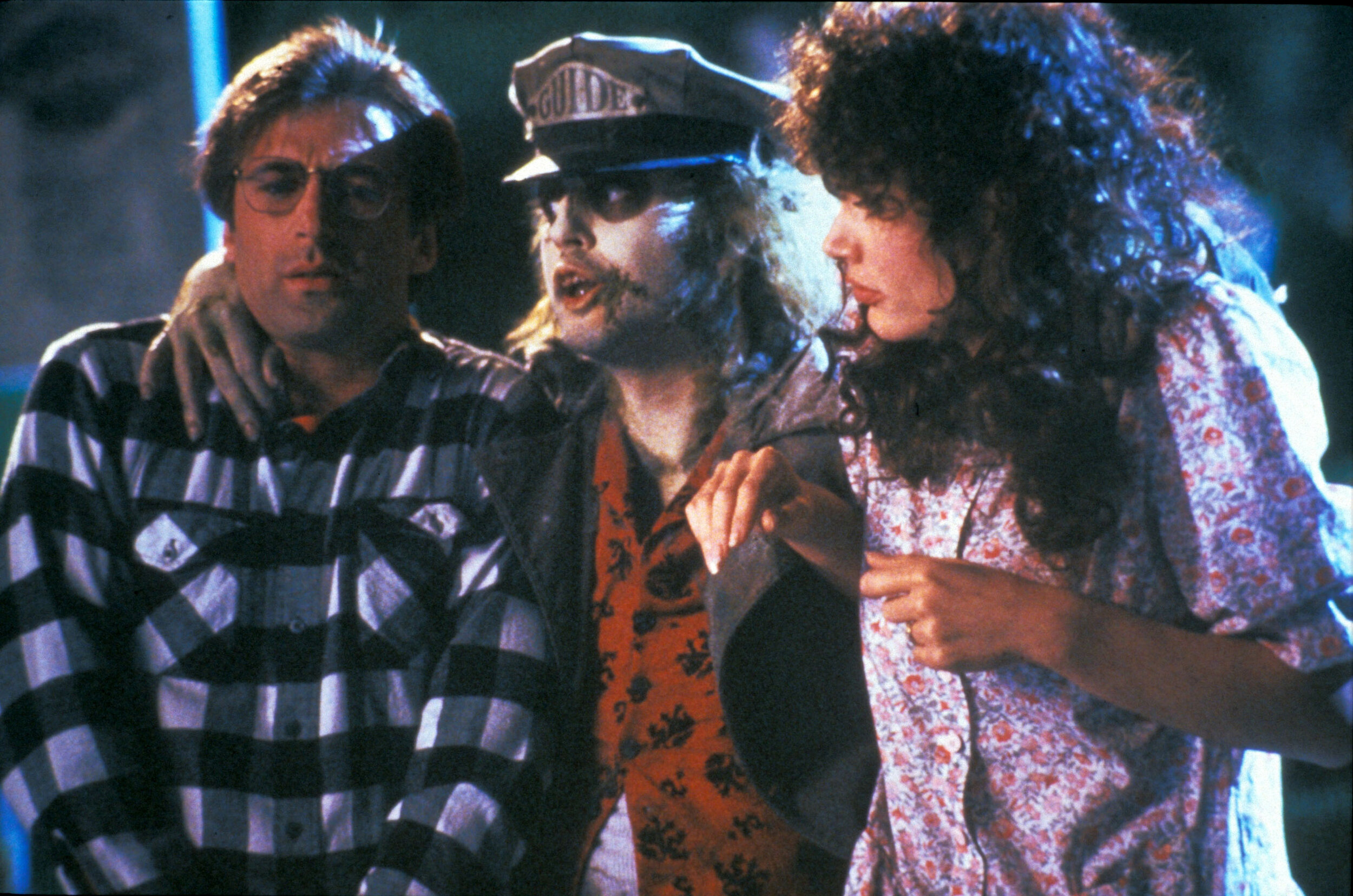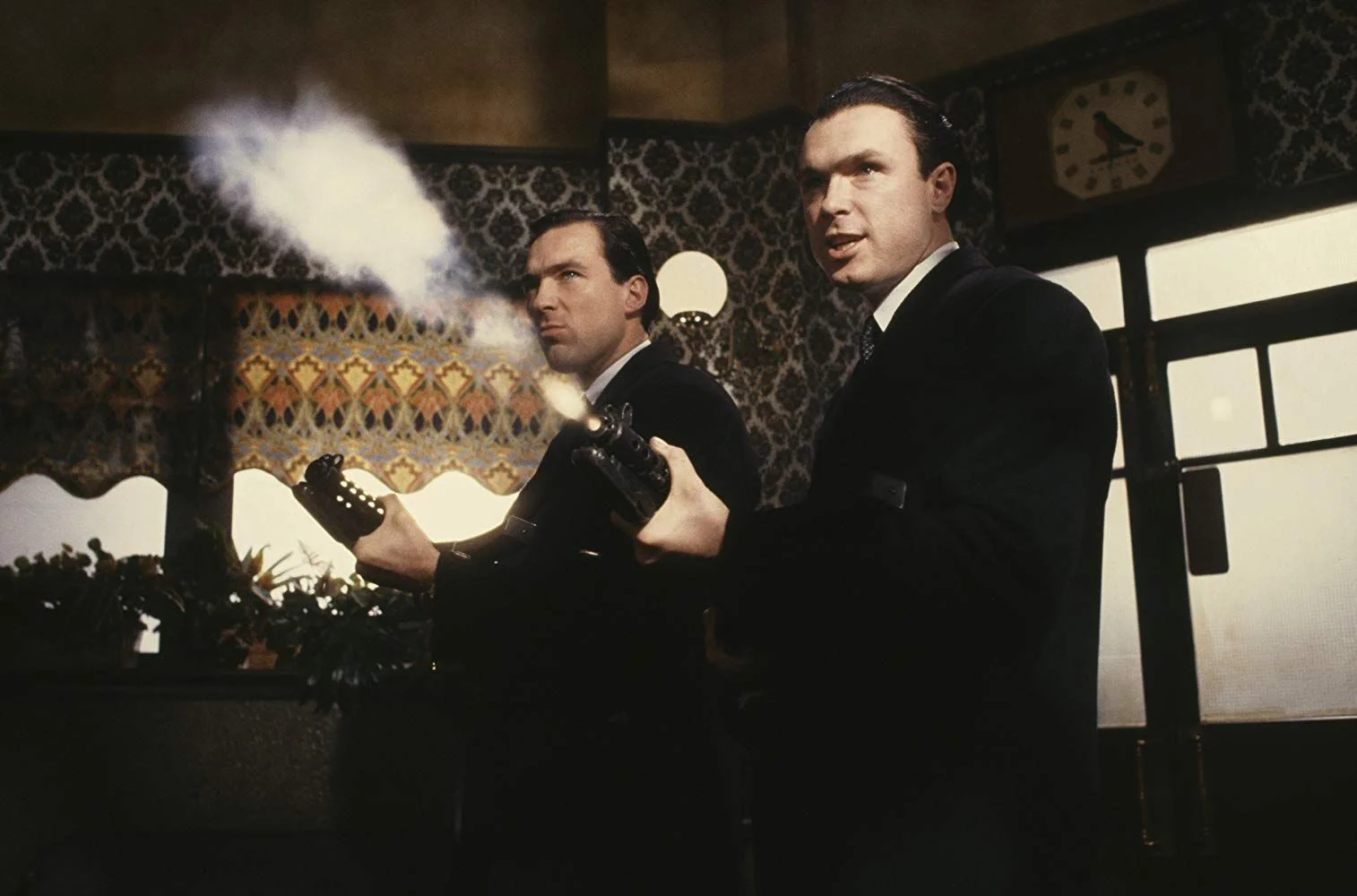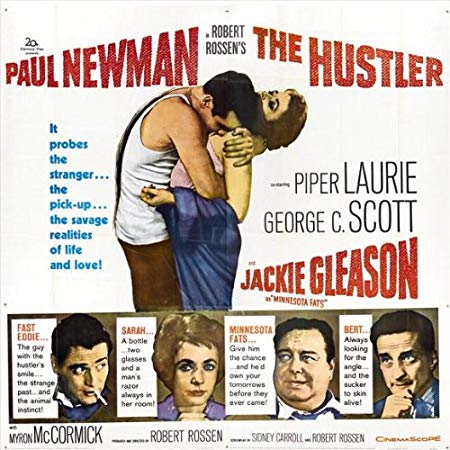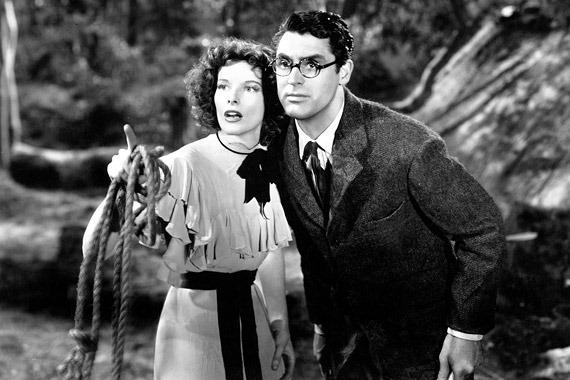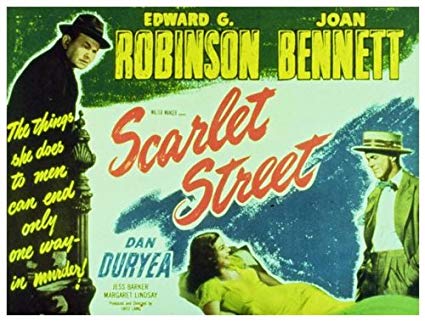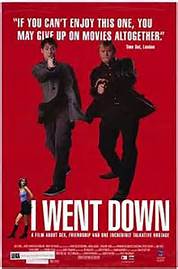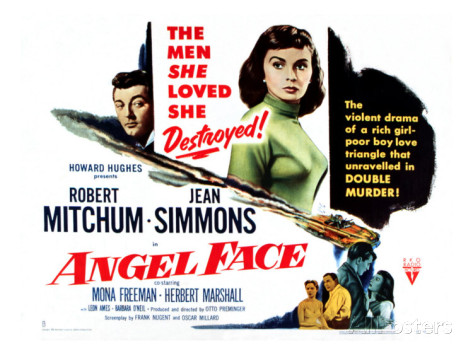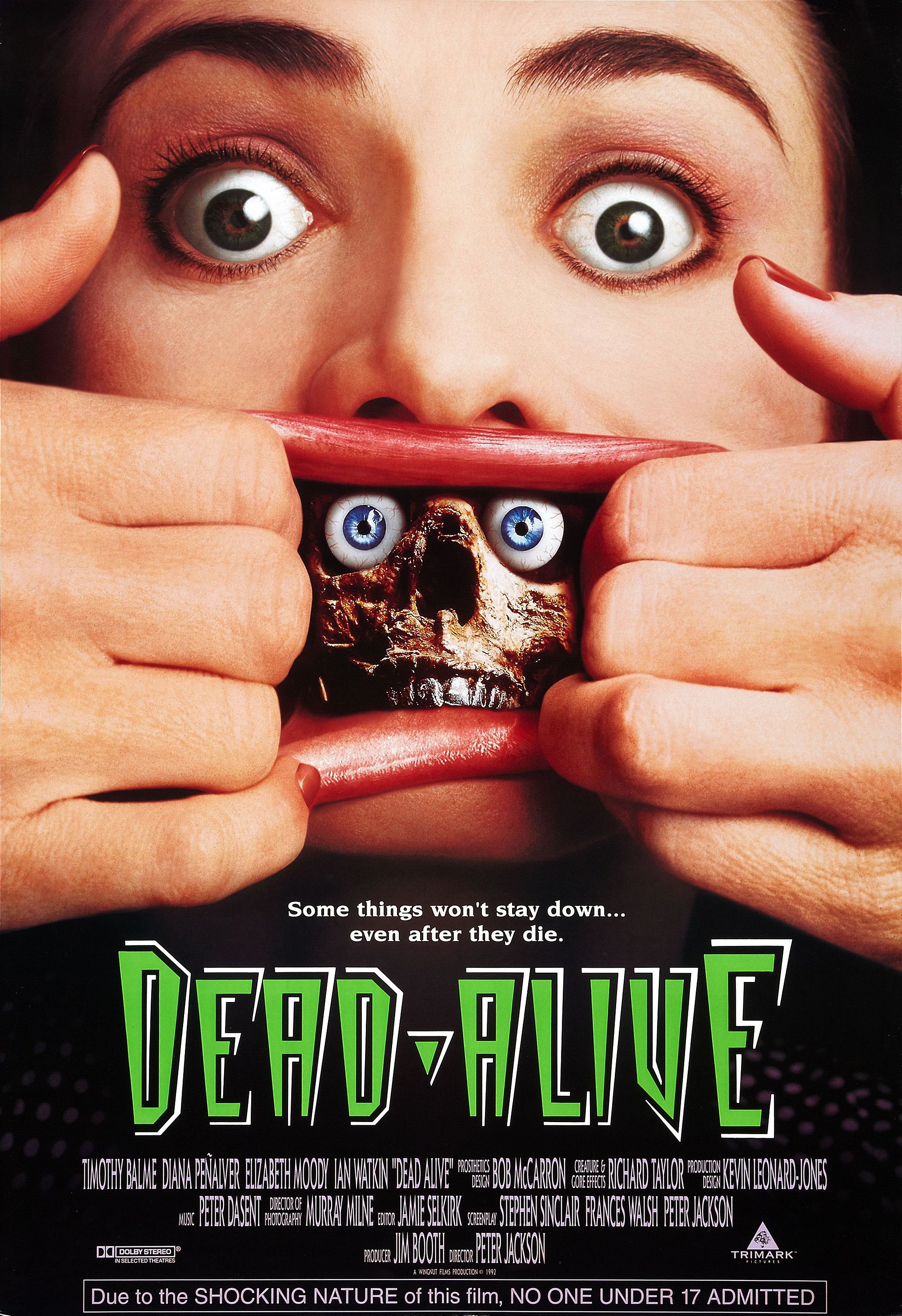Based on the Stephen King short story, Oz Perkins’ The Monkey tells the story of a wind up toy monkey that haunts the lives of twin brothers Hal and Bill. Christian Convery plays the twins as teen boys and Theo James plays them as adults. Produced by James Wan, the film also stars Tatiana Maslany, Sarah Levy, Adam Scott, Elijah Wood and Perkins himself in the role of the boys' eccentric uncle.
Rickshaw Man, Hiroshi Inagaki's 1958 film about a gruff rickshaw driver who becomes the surrogate father to a boy who loses his father unexpectedly, is a remake of his own 1943 black and white film of the same name. The 1958 version won Inagaki the Golden Lion award at the Venice Film Festival and was one of 20 films the director made with his favored actor Toshiro Mifune.
Originally titled Shelter and produced independently in 2010 with Swedish filmmakers Måns Mårlind and Björn Stein co-directing, the Julianne Moore starring 6 Souls, written by Identity's Michael Cooney, was eventually purchased by the Weinstein Company under their Radius banner. But the Weinsteins were in the midst of serious financial woes in 2010 after the failure of Nine and many of their acquisitions ended up in distribution turnaround. 6 Souls would eventually come out in 2013 as a day and date VOD and theatrical release. It got very little attention and seemed a strange detour on Moore's otherwise stellar career path.
Struggling to find a role that would break her from beautiful girlfriend, adoring wife parts, 1992's My New Gun gave Diane Lane her first starring vehicle. It was a role that got her noticed and some of the best reviews of her career. Supporting her were Stephen Collins, James LeGros, Maddie Corman, Tess Harper, and Phillip Seymour Hoffman in the tale of a handgun that sets off a chain of distressing events in the life of Lane's unfulfilled New Jersey housewife.
1973's Slither was the directorial debut of Howard Zieff (Private Benjamin, My Girl) and the screenwriting debut for W.D. Richter (Invasion of the Body Snatchers, Big Trouble In Little China). In the freewheeling comedic thriller, James Caan goes on the road looking for a stash of embezzled money with Peter Boyle, Louise Lasser and Sally Kellerman in tow. Famously, Caan was quoted saying he took the role for the money and had little understanding of the story.
Of his time working with then burgeoning film actress Marilyn Monroe, Fritz Lang recalls a 26 year old who struggled with self esteem issues, set tardiness, and lack of preparation. On 1952's Clash By Night, Monroe drove the director to distraction but was surprisingly embraced by leading lady Barbara Stanwyck. Stanwyck, recognizing an overwhelmed and emotionally vulnerable fellow actress, was patient, helpful, and caring with the young actress according to Lang. What resulted was a pretty assured above the title debut for Monroe and Stanwyck's usual strong lead performance. The drama also boasts the talents of Paul Douglas, Robert Ryan and Keith Andes (returning from the Broadway play, albeit in a different role).
The couples paired up in Martin Ritt's 1961 musical drama Paris Blues were more than just smart casting. Real life married paramours Paul Newman and Joanne Woodward play Ram and Lillian, a jazz musician and the woman who falls in love with him. And Sidney Poitier and Diahann Carroll, real life lovers at the time, play Eddie and Connie. Carroll and Poitier had carried on an extramarital affair on their previous film Porgy and Bess and continued during the making of Paris Blues. Both eventually stayed married and ended the affair after Paris Blues was completed.
Dan and Vicky discuss the found footage horror thriller Megan is Missing. The film, starring many first time actors and shot for under a week on a $35,000 budget, was the brain child of cinematographer Michael Goi. Goi was eager to make a cautionary tale on the dangers of online predators and so impressed Anchor Bay Films they gave the movie, shot in 2008, a small theatrical release in 2011. Starring Amber Perkins and Rachel Quinn, Megan is Missing has divided critics - some applauding it's unflinching look at the dangers of being a teen in the internet age and others calling it exploitative.
Our 200th Episode!
200 episodes of Hot Dates and Hot Takes on some of the weirdest, most beautiful and just plain bad movies. We've covered Oscar Winners and Razzie Winners, blockbusters and indie films, classics and guilty pleasures.
To celebrate this milestone, we've invited Alexandra Kopko from the Film Bros Podcast to discuss our favorite directorial debuts. Dan and Vicky and Alex offer their top tens and a fun list of alternates. From the Gerwig to Raimi to the Lumet, hear the films that paved the way for some of the greatest careers in film - and some that were one and done! It's an epic chat, our longest show EVER!
The 2002 film Home Room imagines the unlikely friendship between two survivors of a school shooting - women from very different backgrounds united in tragedy. Busy Philipps and Erika Christensen play Alicia and Deanna respectively and Victor Garber is the police investigator hoping the two will help answer questions about the deceased shooter. With Columbine fresh in the world's memory, director/writer Paul F. Ryan attempts to examine the effect a mass shooting can have on the community and the people in it.
The 1990 Australian film Blood Oath (Prisoners of the Sun) is the harrowing true to life story of the military tribunal put together on the Indonesian island of Ambon to investigate the mass killings of Australian soldiers in a Japanese POW camp. Leading the charge is Captain Cooper, played by stalwart Aussie actor Bryan Brown (FX, Cocktail, Anyone But You) and a whole battalion of great supporting turns from Deborah Unger, Terry O' Quinn, Russell Crowe, Toshi Shioya, Tetsu Watanabe, George Takei and John Polson.
Joan Bennett and James Mason, in only his third US film, play blackmailee and blackmailer respectively in director Max Ophuls' The Reckless Moment - his tale of a harried housewife whose life is turned upside down when her daughter accidentally kills a cad boyfriend and Bennett tries to cover it up. After directing only five American films, German born Ophuls returned to France, where he was a citizen, and continued to direct until his untimely death at age 54. Despite a relatively small output, Ophuls is nonetheless considered a true auteur.
Shot on location in New Orleans, blaxploitation horror film J.D.'s Revenge was the introduction of two of the hardest working and respected Black actors in the business - Glynn Turman and Louis Gossett. Already established presences in lots of TV and film projects, J.D.'s Revenge gave them the opportunity to play leading roles. With able support from Joan Pringle and Fred Pinkard, the movie, about a law student possessed by the spirit of a violent gangster, has become a cult favorite.
Shot on location in foggy San Francisco, Blake Edwards' Experiment in Terror was his follow up to Breakfast at Tiffany's - again engaging a young sophisticated city girl with a handsome leading man but this time in a very different context. Lee Remick plays Emily Sherwood, a bank teller menaced by a blackmailer and serial killer and Glenn Ford is the FBI agent assigned to protect her and capture the villain. Ross Martin, known mostly for playing nice guys, is bad guy Red Lynch and was nominated for a best supporting actor Golden Globe.
Hot Date is shaking things up for our latest episode. Instead of reaching back in history for a random date, Dan & Vicky stay in the present and discuss the serial killer thriller and recent release Longlegs, directed by Osgood Perkins and starring Maika Monroe, Nic Cage, Blair Underwood and Alicia Witt.
After Italian producers balked at director Enzo Castellari's idea to remake The Dirty Dozen, he raised the money himself and hired American B-movie titans Bo Svenson and Fred Williamson to lead a group of military prisoners across Nazi German territory (really the backlots of Cinecitta and surrounding areas) on a trek to freedom into Switzerland. In 1978's The Inglorious Bastards, Castellari uses all the staples of Italian 70's schlock cinema (boobs, blood and bad dubbing) to great effect in this rousing and silly war film.
Michael Sarnoski, director of the recent summer horror hit A Quiet Place: Day One, made his feature directorial debut with 2021's Pig starring Nicolas Cage and Alex Wolff. Pig is the story of a withdrawn farmer living in the Oregon woods with his trusted and lucrative truffle pig. When the pig is kidnapped, Cage's character embarks on a journey to find it and also maybe himself. The producers didn't have the money to hire a trainer for their porcine star for more than three days so they started shooting and hoped for the best - the pig ended up biting star Cage several times!
After winning the Oscar in 1948 for best actress in Johnny Belinda, Jane Wyman had her pick of projects and leading men. She chose the winning comedy Three Guys Named Mike in 1951 because of it's potential box office appeal and the chance to try her skills in a different genre. Her supporting cast of Mikes included Van Johnson, Howard Keel and Barry Sullivan.
Hot Date has reached another tenth episode and that means a Top Ten extravaganza of movie memories and memorable moments. This time Dan and Vicky discuss their favorite Moms and Dads from film across the ages. The mission was accepted differently by your co-hosts so you're getting an eclectic list of perfect and imperfect parents. Dan, of course, found his choices mostly from the horror genre and included couples while Vicky broke her list into her five favorites of each gender.
A star studded cast joins Guy Ritchie regular Jason Statham in Revolver, the British auteur's violent meditation on the Ego and revenge. Ray Liotta, Andre Benjamin, Mark Strong, Vincent Pastore and Francesca Annis are all members of warring crime syndicates with Statham as the ex-con caught in the center. Ritchie was ultimately unhappy with the theatrical version and reinstated and rearranged many scenes to make his 110 minute version.
In 1944's Christmas Holiday, Deanna Durbin and Gene Kelly, both known for their achievements in musical comedies, were cast against type as a lounge singer with a sordid past and her abusive husband respectively. Audiences seemed to be ready for the change as Christmas Holiday, directed by stylist Robert Siodmak and based on a W. Somerset Maugham story, quickly became one of Universal's most successful films of 1944.
Alan Alda plays George Plimpton in Paper Lion, the 1968 film based on Plimpton's book of the same title. The book and film chronicle his attempt at joining the Detroit Lions during pre-season training for a story in Sports Illustrated. Several real life football players appear as themselves in the film inlcuding Alex Karras (who starred two more times on film with Alda in Springtime and M*A*S*H*), Frank Gifford, Joe Schmidt, and Lem Barney.
When Francis Ford Coppola hired German auteur Wim Wenders to direct his first American film, little did he suspect the difficulty that film would have getting to screens. The movie was Hammett, a fictionalized account of the mystery writer Dashell Hammett's second career as a private investigator. In real life, Hammett stuck to penning noirs but in Wenders' film he's enlisted to solve the disappearance of a San Francisco woman. The film was entirely reshot on sound stages after Orion Pictures expressed dissatisfaction with Wenders expansive shot-on-location first edit. It stars Frederic Forrest, Peter Boyle, Marilu Henner, Lydia Lei and Elisha Cook Jr.
1952's Stolen Face was an early Hammer Films production. The British studio, which would later become synonymous with thrillers and horror films, also churned out it's fair share of melodramas and comedies. This film, about a heartbroken plastic surgeon who physically transforms a ex-con into the woman who jilted him, stars Lizabeth Scott, Paul Henreid, Andre’ Morell and Mary Mackenzie, and set the stage for films like Vertigo, Eyes Without a Face and The Skin I Live In.
Actor Ray Liotta was coming off crtitical acclaim for his star making turn in Martin Scorcese's Goodfellas and was looking for a vehicle that would turn him into a bonafide movie star. For others that path was paved by action movies so Liotta signed on to 1994's No Escape hoping it would catapult him to international acclaim. As the stoic, brooding J. T. Robbins, Liotta was able to not only show brawn, but also brains as he attempts to escape the island penal colony of Absolom and it's violent de facto leader Marek played by Stuart Wilson. The film also boasts Ernie Hudson, Kevin Dillon, Kevin J. O'Connor and Lance Henriksen.
1974's The Tamarind Seed was considered a departure for star Julie Andrews. After a break to raise her family, Andrews was looking for a role that would reintroduce her to audiences in a new light. As the 70's were rife with political and paranoid thrillers, she jumped at the chance to play Judith Farrow - a woman reeling from personal tragedy who gets embroiled in a Cold War bait and switch. It helped that Andrews was being directed by husband Blake Edwards (who also adapted the script from Evelyn Anthony's novel) and her love interest was Omar Sharif.
1939's horror comedy The Gorilla was meant to be another 20th Century Fox showcase for the talents of The Ritz Brothers - three Newark born and Brooklyn raised brothers snatched from vaudeville by the studio in hopes they would bring Marx Brothers or Three Stooges size audiences. The film, however, was plagued with false starts, lawsuits and bad blood. It's failure effectively ended the trio's time at 20th and after one more film at Universal, they returned to the stage and nightclub circuit.
A very special episode of the Hot Date Podcast with Dan & Vicky. There's drama, there's tears, there's nausea inducing popcorn. And, oh yeah, a movie to discuss.
This time it's 2000's Cornwall shot Saving Grace starring Brenda Blethyn and Craig Ferguson in the charming tale of a woman on the verge of bankruptcy with a plan to save her home by growing weed.
We've reached another tenth podcast. Dan and Vicky are counting down to their favorite top ten scary/creepy performances! Men, women, and children are eligible. Try and guess which actor appears on both lists, which actor has two performances highlighted. What made-for-TV film makes the list!?
Italian horror director Lucio Fulci's 1988 Aenigma seems to have been inspired by films as varied as Carrie and Patrick, with a dash of Argento madness and 80's slasher thrown in for good measure. Shot in Serbia standing in for Boston, the film features make up effects by Guiseppe Ferrante, cinematography from Luigi Ciccarese and a score by Carlo Maria Cordio.
Take a trip on decommissioned Streetcar 133 in Luis Bunuel's surreal and sweet 1954 film Illusion Travels By Streetcar (La Ilusión Viaja en Tranvía). When two mechanics learn their favorite streetcar is being taken off the line for good, they take it for one last drunken joyride that turns into an existential examination of life in a big city. The film stars Carlos Navarro and Fernando Soto as the hapless mechanics and Lilia Prado as their female foil and potential love interest.
1954's Sleep, My Love was an early directorial effort from German born emigre Douglas Sirk. Sirk would later become recognized as an auteur - by, of course, the French - for his work with melodramas (Magnificent Obsession, All That Heaven Allows). Sleep, My Love, starring Claudette Colbert, Robert Cummings, Don Ameche and Hazel Brooks, was his attempt at a domestic thriller.
Actors Griffin Dunne, Mark Metcalf, and Amy Robinson were looking for film projects for their fledgling production company and all agreed that Ann Beattie's novel Chilly Scenes of Winter was ripe for adaptation. Indie director Joan Micklin Silver came on board with John Heard and Mary Beth Hurt leading the cast. The film struggled at the box office in 1979 under the new United Artists imposed title Head Over Heels. When it was re-released in 1982 as Chilly Scenes of Winter, the film fared better and has since become a cult title.
Mike White's (White Lotus, Enlightened, Chuck and Buck) directorial debut Year of the Dog tells the story of Peggy Spade, a mild mannered people pleaser who's life is upended when she loses her dog Pencil in a poisoning accident. Or was it an accident? Molly Shannon plays Peggy with a strong supporting cast that includes Peter Saarsgard, John C. Reilly, Regina King, Laura Dern, Josh Pais and Tom McCarthy.
Dan and Vicky head back to the old west for a Gunfight at the OK Corral. The 1957 film directed by John Sturges and starring Burt Lancaster and Kirk Douglas tells the oft told tale of the legendary, albeit short, gun battle between the Earps and the Clantons and the violence, greed and passions that lead up to it.
1985's Crimewave was the sophmore effort for Evil Dead director Sam Raimi, actor and producer Bruce Campbell and producer Bob Tapert. The film started as the script The XYZ Murders by Joel and Ethan Coen. Raimi and genre friendly production company Avco-Embassy agreed the script was a winner and started shooting on a 2.5 million dollar budget. And that's when the problems started. With really young and relatively inexperienced fillmmakers at the helm, the budget balllooned, actors started getting hurt and animosity grew.
1963's Shock Corridor was director /writer/ provocateur Sam Fuller's depiction of the search for truth in a hostile society bent on obfuscating and distorting it. Set in a mental institution, Fuller's story of a Boston Globe journalist who gets himself committed to solve a murder gets at the hypocrisy and violence that can occur when that search butts up against racism, sexism and preservation of the status quo. The film stars Peter Breck, Constance Towers, James Best, Gene Evans and Hari Rhodes.
At a time when there was considerable United States naivete and even support around Hitler's domination of Europe, Warner Bros. took the calculated risk of releasing the fervently antifascist 1943 film adaptation of Lillian Helman's Tony award winning play Watch on the Rhine. Aiding them in delivering the important message was outspoken liberal Bette Davis, Hungarian born leading man Paul Lukas (who ended up winning the Oscar for Best Actor), Dashiell Hammett (taking over writing duties from partner Hellman), and producer Hal Wallis.
We're back with another Top Ten! Every tenth show we try to pick a fun and engaging topic that'll yield a list of our favorite top tens.
This time it's Top Ten remakes. Vicky's criteria was films that are better or just as good as the original. Dan didn't really stick to that criteria as you'll hear but the lists are eclectic, cover several genres and span the globe!
Dan and Vicky discuss the 1998 Canadian psychological thriller Pin from writer/director Sandor Stern starring David Hewlett, Cynthia Preston, Terry O'Quinn and the voice of Breaking Bad actor Jonathan Banks. Stern is most famous for penning The Amityville Horror from 1979.
On Hot Date episode 168, Dan and Vicky discuss the French-Polish film The Double Life of Veronique starring Irene Jacob, Philippe Volter, Sandrine Dumas and Claude Duneton. This was the breakthrough film of Polish auteur KRZYSZTOF KIESLOWSKI, who went on to make the acclaimed Color Trilogy and the Dekalog series.
Dan and Vicky discuss the randomly chosen 1950 melodrama Paid In Full starring Lizabeth Scott, Diana Lynn, Robert Cummings and Eve Arden. The working title of this film was Bitter Victory. According to a Hollywood Reporter news item, this film was based on an actual event, as related by Frederic M. Loomis in his article in Reader's Digest.
Although stuntmen did most of the underwater work, Elvis Presley, cast as Navy frogman Ted Jackson, whose job it was to diffuse sunken mines, still had a lot of scenes in and around water in 1967's Easy Come, Easy Go. This necessitated being clothed head to toe in scuba gear and getting wet occasionally - two things Elvis was not a fan of. Also appearing in this film were an off shore treasure subplot, a yoga class musical number, hippies in full body paint and One Day at a Time star Pat Harrington as the owner of a seaside shanty.
Based on the true kidnapping story of wealthy Hong Kong businessman Teddy Wang, 1993's (although shot in 1993, it wasn't released in the US until 1996) Crime Story was an attempt by Jackie Chan to expand his dramatic acting range. Audiences, and Chan himself, were not completely happy with the results. The film didn't make much of a box office impression and Chan resented director Kirk Wong for pushing the film to be darker.
Although produced in Spain, 1973's The Corruption of Chris Miller, has all the earmarks of a traditional Italian giallo - sexual tension in an isolated country house, bad dubbing and, most importantly, a black gloved killer. The film is directed by J.A. Bardem, uncle of Oscar winner Javier Bardem. The lush cinematography is by Juan Gelpi and the grand score is from Waldo de los Rios.
A starry cast brings 1949's The Bribe to life. Robert Taylor, Ava Gardner, Charles Laughton, Vincent Price and John Hodiak are all on a fictitious Caribbean island together falling in love and scheming to steal leftover ammunition parts. This somewhat forgotten noir was written by Marguerite Roberts, whose career was put on hold when she was blacklisted in 1951 for refusing to testify in front of the House Unamerican Activities Committee. It was nine years before she would resurface and write several award nominated screenplays, including the one that would win John Wayne his only Oscar, True Grit.
The Burning Plain was the directorial debut of screenwriter Guillermo Arriaga, who took cues from his screenplays for Amores Perros, 21 Grams and Babel to weave the intergenerational story of two families, one white and one Mexican, colliding and seeking redemption. The film stars Charlize Theron, Kim Basinger, Jennifer Lawrence, and Joaquim de Almeida.
When it came time make the film of Arthur Laurents successful play The Time of the Cuckoo, the natural casting choice was Shirley Booth, who won a Tony for the Broadway production and had an Oscar for the 1952 film Come Back Little Sheba. But producers felt she was too old and not enough of a box office draw. Director David Lean was determined to get Katherine Hepburn and the star needed little convincing. As her love interest, he cast Italian Rossano Brazzi. Future Night Stalker star and suffering Dad in A Christmas Story Darren McGavin made his film debut in the small role of a philandering artist.
We've reached our next Top Ten episode (something we do here at Hot Date when we reach every tenth show) and this time we're picking our favorite mysteries and whodunits. From Poirot to Parker, Giallo to slasher, we're choosing the films that kept us guessing, made us gasp and even gave us some chuckles.
Dan and Vicky offer a special Halloween episode of Hot Date covering the 1982 Canadian slasher Humongous. It was Vicky's idea to find a horror film from the 80's that she hadn't seen and Dan had. They were almost successful - after all Vicky's seen ALOT of movies.
Humongous, directed by Prom Night's Paul Lynch and written by The Changeling's William Gray, has been a mostly forgotten slasher only recently finding an audience after being cleaned up for DVD and blu ray.
Director Stuart Gordon, known for creating the body horror classics Reanimator and From Beyond, reunited with writer David Mamet to direct the film adaptation of the controversial playwright's one act play Edmond. Gordon and Mamet were colleagues in the Chicago theater scene and first collaborated on the original staging of the writer's Sexual Perversity in Chicago. In Edmond, William H. Macy plays the title character, a misanthropic bigot being put through a dark night of the soul on his way to elightenment. The cast includes Julia Stiles, Joe Mantegna, Rebecca Pidgeon, Denise Richards, and Bokeem Woodbine.
1951's Three Husbands and 1949's A Letter To Three Wives share screenwriter Vera Caspary but also similar storylines. In Three Husbands, the title characters receive letters about their wives' possible infidelity and in Three Wives the ladies receive missives from a woman announcing she is running away with one of their husbands. Caspary specialized in stories about strong women, having also penned Laura, The Blue Gardenia (a Hot Date pick at Episode 118), and I Can Get it For You Wholesale.
With Shakespeare's King Lear as it's source material, both the book by Jane Smiley and the film adaptation directed by Jocelyn Moorehouse of A Thousand Acres sets the action on an Iowa farm. In the 1997 film, Jason Robards plays the raging patriarch of the Cook family, whose bequest of his land to his three daughters, played by Jessica Lange, Michelle Pfeiffer, and Jennifer Jason Leigh, raises tensions and unearths long hidden family secrets.
Tigon British Film Productions, founded in 1966 as counter programming to the more well known Hammer Studios, nonetheless took a page from the Hammer playbook by making horror and exploitation films. Tigon films, however, are often marked by a low budget mean streak and grittiness. 1969's The Blood Beast Terror stars Peter Cushing, Robert Flemyng, Wanda Ventham, and Vanessa Howard.
Director/screenwriter Bill Condon has since become an Oscar winning filmmaker with credits ranging from writing 2002's Chicago to directing two films in the Twilight series. But his directorial debut came with 1987's Sister, Sister, a Gothic thriller set in Louisiana, starring Judith Ivey, Jennifer Jason Leigh, and Eric Stoltz.
In response to the success Univeral was having with it's monster series, 20th Century Fox endeavored to bring their own monster movies to the big screen. Taking cues from the mix of horror and comedy Universal had begun to explore, The Undying Monster has a scary castle, a family curse, a pair of funny Scotland investigators and visual style to spare. It's directed by John Brahm and stars Heather Angel, John Ellison, John Howard and Heather Thatcher.
Robert Altman's Chicago set A Wedding from 1978 tells the story of two families and the lavish and chaotic day they marry off young Dino (Desi Arnaz Jr.) and Muffin (Amy Stryker). An all star cast of 70's luminaries, including Carol Burnett, Paul Dooley, Mia Farrow, Lillian Gish, Dina Merrill, Vittorio Gassman and Geraldine Chaplin, is joined by some background players who would later become stars in their own right. Look closely for Windy City actors Laurie Metcalf, John Malkovich, Jeff Perry, Gary Sinise, Joan Allen, George Wendt and Dennis Franz!
The Patricia Highsmith novel The Talented Mr. Ripley has been adapted twice for the screen - most recently in 1995 in a star studded version by director Anthony Minghella. But the novel's first filmed version came in 1960 from two time Oscar winning director Rene Clement. Called Purple Noon in an ode to the vibrant Italian sky over Sicily where the story was set and shot, Clement's version casts Alain Delon as the sinister Tom Ripley and Maurice Renot as rich playboy Dickie (called Philippe in this film).
For our milestone 150th show, we offer our Top Ten lists of our favorite Best Picture Winners of all time. From ribald comedies to dark thrillers to ripped from the headlines dramas, Dan and Vicky honor those honored with the most prestigious film award in the world.
Off of the critical success of his 2010 film Buried (which trapped star Ryan Reynolds inside a coffin for 90 minutes) director Rodrigo Cortes had the clout to attract Sigourney Weaver, Robert DeNiro, Cillian Murphy, Toby Jones and Elizabeth Olsen to his next project. 2012's Red Lights is the story of a duo of supernatural debunkers who meet their match in a celebrity psychic with a dangerous past.
Filmmaker Frank Agrama, mostly known today as the producer of family friendly fare like the Robotech TV and video game series and a Heidi miniseries, got his start with more adult material like the 1981 horror film Dawn of the Mummy. Taking over direction from fired original director, Armand Weston, Agrama shot the grisly feature in his home country of Egypt with mostly American actors and an Italian crew.
1956's Picnic, adapted from the Pulitzer and Tony award winning stage play by William Inge, gave director Joshua Logan the chance to realize the grand picnic of the title on actual locations in Kansas. But the filming was not without it's headaches. With two insecure lead actors, tornadoes that threatened to shut production down, and thousands of extras to corral, Picnic could have been a mess. But it went on to be a box office success and win two Academy Awards.
With the powerhouse producing team of Guillermo Del Toro and Alfonso Cuaron behind it, 2004's Ecuadorean drama Cronicas had an easy time being chosen as that country's submission for the Best Foreign Language film at the Academy Awards. It didn't get that honor but still had the star power to guide it to international acclaim. John Leguizamo, performing fully in Spanish for the first time in his career, leads a stellar cast that includes Leonor Watling, Damian Alcazar, Jose Maria Yazpik and Alfred Molina.
1965's Who Killed Teddy Bear mixes spasmodic dance sequences, lewd phone calls, predatory lesbians, incest, and Sal Mineo in short shorts to create one of the strangest films to come out of the swingin' sixties. It's directed by Joseph Cates and stars Mineo, Juliet Prowse, Jan Murray, and Elaine Stritch.
The unique 1946 film noir So Dark The Night gave actor Steven Geray his first and only chance to play the lead in a film. Up until then, and for years after, he was a reliable and memorable supporting player in films like Spellbound, Gilda and All About Eve. Geray had fled his homeland of Hungary after his pointed impersonations of Hitler and Mussolini on the European theatre circuit drew the threatening attention of the Italian and German governments!
In the early 70's Hammer Studios, Britain's premier production house for horror and fantasy films, was at a crossroads. The Hammer name connoted class, style and a certain elegance but the new wave of horror was grittier and more explicit. Playing against The Exorcist and Texas Chainsaw Massacre, Hammer films could almost appear quaint. So Hammer pivoted and started making films like 1972's Dr. Jekyll and Sister Hyde in response. Still using trained British talent and adapting classic texts, this new period for Hammer saw a push towards more nudity (mostly female) and more visceral violence. Dr. Jekyll and Sister Hyde was advertised as giving viewers "the sexual transformation of a man into a woman...before your very eyes!" A bold claim - not entirely true - but part of Hammer's attempt to draw in more exploitation hungry crowds.
1991's The Commitments was a departure for filmmaker Alan Parker. Traditionally an explorer of the darker reaches of human interaction (Angel Heart, Mississippi Burning), the film was instead a serio-comic look at the making of a band in working class Dublin. Based on the novel by Roddy Doyle, Parker and his casting team scoured Ireland for actors who could convince as musicians or musicians who could carry the dramatic demands of the script. He came up with a motley crew of actual singers (Maria Doyle, Glen Hansard) and exciting novices (Andrew Strong, Angeline Ball).
For our final Hot Date of 2021, we chose Putney Swope, written and directed by Robert Downey Sr. As an indictment of corporate greed, the advertising business and race, the film was Downey's reaction to working for years in a production company whose main client was a powerful ad agency. There were no takers for the movie from the major studios so Downey turned to independent producer and distributor Don Rugoff, who placed the film in his art houses across the country and turned it into a major underground hit.
We're back again with another of our famous Top Ten List episodes. This time we're looking at our favorite movie villains. Those despicable, pathetic, misguided, attractive movie characters - some based on real people - we love to hate from films spanning the last century.
A negative pickup for Universal Pictures to cash in on the 3D trend partially initiated by the company's own Jaws 3, low budget sci fi epic Metalstorm failed to spark at the box office. Of the many quirky elements of the film, it's bombastic orchestral score sticks out as belonging to a different movie. Composed by Band's brother Richard, the music gives the film a gravitas that the chintzy special effects, languid pace and bad acting don't. The film stars soap star Jeffrey Byron, Australian Mike Preston, the late Kelly Preston, genre fave Tim Thomerson and Night Court's Richard Moll.
1948's Brighton Rock, based on the novel by Graham Greene, was a controversial hit in England where critics felt it reached new levels of depravity and on screen violence. It also met the ire of novelist Greene himself, who was denied the opportunity to adapt his own book - that task fell to playwright Terrence Rattigan - and given zero influence in casting decisions. Greene was vocal about his dislike of Richard Attenborough in the lead role of Pinkie Brown and Hermione Baddeley as crusader Ida Arnold. After seeing the completed film, however, he relented and agreed both actors were well cast.
A star studded cast highlights the crime drama Things To Do In Denver When You're Dead, director Gary Fleder and screenwriter Scott Rosenberg's entry in the 1990's spate of talky neo noir thrillers. This is has Andy Garcia, Treat Williams, Christopher Walken, Fairuza Balk, Christopher Lloyd, Bill Nunn, William Forsythe, Josh Charles, Jack Warden, Steve Buscemi, and Gabrielle Anwar.
1958's Blood of the Vampire had all the earmarks of a Hammer film without actually being one. Hammer regular Jimmy Sangster was brought in to write the script. The film very much echoed the style and flair of a Hammer film. And Hammer actress Barbara Shelley (Dracula, Prince of Darkness, Rasputin, Quatermass and the Pit) plays the female lead. It didn't fool British movie goers however where the film was less successful but found a healthy audience in the US where it ran for years on double bills with other B movies.
Dan and Vicky chose the random Hot Date of August 21, 1965 and decided on the film Darling starring Julie Christie, in her Oscar winning lead performance, and Dirk Bogarde and Laurence Harvey as the two men vying for her attention. Directed by John Schlesinger (Midnight Cowboy, Sunday, Bloody Sunday), it's a first time watch for our hosts.
A passion project for star Christopher Reeve, 1987's Street Smart became instead the auspicious introduction of film audiences to Morgan Freeman and Kathy Baker. Freeman, mostly known for his four years on PBS's Electric Company and a successful theater career, stepped into the spotlight and received an Oscar nomination for his work as vicious pimp Fast Black. Baker, also a renowned theater actress, gained notice in the film The Right Stuff before breaking out as Street Smart's sympathetic hooker Punchy.
Two years after having the biggest blockbuster to date with Jaws and three years after the successful disaster pick Earthquake, Universal Studios pulled out all the stops with Rollercoaster, hoping to duplicate the earlier films' box office. They doubled down on Sensurround, the innovative sound system that immersed audiences in every creak, rumble and woosh of the titular ride and hired 70's everyman George Segal as the lead. The movie, however, did not connect with audiences, and was easily trounced at cinemas by George Lucas's first Star Wars film (or his fourth, depending on who you ask).
Director Josef von Sternberg was lured back to Eastern Europe from Hollywood in 1930 by producer Erich Pommer to direct a film about mad Russian monk and con man Rasputin. Sternberg set his sights instead on an adaptation of the novel Professor Unrath by Heinrich Mann. He cast Oscar winner Emil Jannings in the title role and discovered his leading lady, Marlene Dietrich, singing in a local Berlin club, was instantly taken by her and offered her the role.
Producer Samuel Goldwyn wanted to populate his film of Elmer Rice's play Street Scene with a mix of actors from the hit Broadway production and Hollywood. To play the lead Rose, Goldwyn had Nancy Carroll in mind. Signed to Paramount, the studio's managing director Bud Schulberg, would not give Carroll up for the film, instead suggesting Sylvia Sidney for the part. Sidney, also Schulberg's mistress, nonetheless turned out to be inspired casting for the role and anchors the ensemble with her mix of innocence and grit.
Murder, kidnapping, revenge, sex, and love gone wrong. All the subjects, and more, of some of the greatest films based on true crime events. And all getting a Spotlight “wink,” on Hot Date's latest Top Ten episode. We cover some of our favorite films based on and inspired by true events. You'll hear about some classic titles, but also films that may be new to you. So check your alarm system, get your mace, and hide the jewels, cuz these films will steal more than your heart.
Oscar winning actress Regina King directs One Night in Miami, a fictionalized account of the meeting in 1964, post the Clay/Liston fight, between Cassius Clay, Jim Brown, Sam Cooke and Malcolm X. It is adapted by Kemp Power from his own play of the same name. Kemp made history himself as the first African-American to co-write and direct a Disney animated feature with 2018's Soul.
1994 was a very busy time for 25 year old future Oscar winner Renee Zellweger. She found work in six films that year - everything from a Texas Chainsaw Massacre sequel to grunge classic Dazed and Confused. But it was Love And A .45 that gave her the opportunity to play her first lead role. The lovers on the lam film also boasted the varied talents of Ally McBeal heartthrob Gil Bellows, Peter Fonda, ReAnimator's Jeffrey Combs, Rory Cochrane and David Lynch regular Jack Nance.
The 1951 noir No Questions Asked was a rarity for MGM. The studio, mainly know for epics and musicals, steered clear of edgier material. But when producer Dore Schary became head of production he had a clear goal of reproducing the success he had at RKO and rushed several noirs into production, the first being the New York set No Questions Asked. The film stars Barry Sullivan, Arlene Dahl, Jean Hagen and George Murphy.
Juzo Itami's 1985 film Tampopo, about one woman's search for the perfect ramen recipe, has become so popular over the years that the restaurant industry around the world adopted it's name for many of it's own ramen and Japanese establishments. The film teams the director with his real life wife Nobuko Miyamoto, along with Kurosawa regular Tsutomu Yamazaki and Ken Watanabe, who would go on to be one of the most bankable Japanese actors around the world.
Based on the popular folk song of the same name by Mississippi born singer Bobbie Gentry, Ode to Billy Joe was a huge hit when released in the summer of 1976. The film was the brainchild of Max Baer Jr., best known for playing Jethro Bodine in the popular 60's sitcom The Beverly Hillbillies. When acting jobs became scarce after the cancellation of the show Baer put his focus on film production and made and starred in what was thought to be the most successful independent film of all time, 1974's Macon County Line, until The Blair Witch Project surpassed it in 1999.
The obscure 1962 film What A Carve Up!, retitled No Place Like Homicide! for it's American release, brings British comedians Sidney James and Kenneth Connor together in a comedy thriller with touches of vaudeville revue and murder mystery. James was UK comedy royalty having been the star of the successful Carry On series of films while Connor first found success in radio and later joined James in the Carry On franchise. Here they're bumbling buddies hoping to claim an inheritance while not getting murdered in the process.
Renowned French director Claire Denis was shooting her dour thriller High Life while nursing her dying mother. She credits the real life tragedy in her life for the somber, sometimes oppressive feeling that pervades the film. It stars Robert Pattinson and an international cast including Juliette Binoche (a Denis regular), Mia Goth, Andre (3000) Benjamin, and Lars Eidinger and was Denis's first English language film and her second true attempt at genre after 2001's vampire drama Trouble Every Day.
Shot in 6 days for the super stingy price tag of $69,000, Kurt Neumann's The Secret of the Blue Room, a remake itself of a German film, was enough of a success for Universal Pictures that they remade it twice in the span of eleven years. Once in 1938 as a semi-comedy called The Missing Guest and again in 1944 as a musical called Murder in the Blue Room.
2014's The Last Passenger was the feature directorial debut of British filmmaker Omid Nooshin and tragically his last. After a long battle with depression, the ambitious and talented director, who was rumored to have snuck his way onto the sets of Eyes Wide Shut and Star Wars: Phantom Menace to observe filming, committed suicide in early 2018, leaving a wife and young child. National Suicide Prevention Hotline : 800-273-8255. https://suicidepreventionlifeline.org/
Hot Date has reached another Top Ten episode - just what we do here every tenth podcast - and this time Dan and Vicky discuss their favorite all time male comedic film performances. Spanning movies from the 20's to the 2000's, we hope you'll have a chuckle recalling these very funny men. No names revealed here. You'll have to listen to Hot Date 120!
Here we are at the end of 2020 taking stock of the strange and intense year that was. There's lots of introspection, reflection, and depression happening. So does Hot Date have the movie for you! 1973's Under Milk Wood, starring Richard Burton, Peter O'Toole, Elizabeth Taylor, Glynis Johns, and a bevy of wonderful British character actors, is a film adaptation of Welsh writer Dylan Thomas's tone poem.
By all accounts a job for hire, The Blue Gardenia nonetheless benefited from having German director Fritz Lang at the helm. On a tight 21 day shooting schedule, Lang and cinematographer Nicholas Musuraca came up with shooting techniques that would save time while also contributing a sense of suffocating paranoia and intensity. They are aided enormously by an able cast led by Anne Baxter, Richard Conte, Ann Sothern and Raymond Burr and classed up musically be the appearance of Nat King Cole on the soundtrack and in a key scene.
Before Norwegian filmmaker Andre Øvredal found acclaim with his festival fave The Autopsy of Jane Doe and box office clout with 2019's teen horror hit Scary Stories to Tell in the Dark, he wrote and directed 2011's Trollhunter which won him acclaim both at home and around the world. The found footage fantasy follows a group of college journalists getting to the bottom of Norway's best kept secret - the government sanctioned hunting of real live trolls!
Originally a screenplay titled Nightline, 1980's Don't Answer The Phone was shot under the title The Hollywood Strangler - perhaps a nod to director Robert Hammer's stated purpose to make a film exploring the proliferation of serial killers in the 1970's. The eventual title was a bid to get the audiences that had made 1979's phone themed thriller When A Stranger Calls a success.
Released in 1932, Jewel Robbery flaunted the sexual chemistry between it's two leads, introduced marijuana as a comedic motif and had it's debonair criminal escape police capture at the end -- all things that wouldn't have been allowed only a few years later under the restrictive Hayes code. The film stars William Powell and Kay Francis - their sixth film appearance together -- and is ably directed by William Dieterle (The Life of Emile Zola).
At 73, Boris Karloff was looking for material that would finally give him the chance to show his range as a performer. He knew he couldn't escape his reputation as a reliable box office horror star but he hoped for a role that would allow him to play more than the sympathetic monster. 1958's The Haunted Strangler, written for the actor by friend Jan Read, gave him that opportunity -- partly.
Courtesy of TriCoast Entertainment, Dan and Vicky review By Night's End from director Walker Whited. The home invasion thriller, co-written by Whited and Sean McCann, stars Michelle Rose and Kurt Yue as a couple in trauma facing financial ruin and deep personal loss. A violent intruder unknowingly offers them a way out but they must first fend off the intruder's cronies and survive the night.
Your Hot Date hosts travel back in time to 1561 and the tumultuous return of Mary Queen of Scots from France to stake her claim to the English crown from her cousin Queen Elizabeth. It's a story of sex, religious intolerance, and female empowerment told by two of the world's rising stars in Margot Robbie and Saoirse Ronin, fledgling film director with a background in British theater Josie Rourke and House of Cards creator Beau Willimon.
At just under an hour, the 1934 murder mystery The Crime of Helen Stanley hardly overstays it's welcome. It was the fourth film in the Inspector Steve Trent series with Ralph Bellamy playing the always able and ready gumshoe. This time he's investigating the murder of a famous, and infamous, movie actress who leaves a trail of suspects in her wake.
2013's indie comedy Dealin' With Idiots was a passion project for actor Jeff Garlin (Curb Your Enthusiasm). Directed, co-written and produced by Garlin, the film employs the talents of comedic all-stars Fed Willard, Bob Odenkirk, Jami Gertz and Kerri Kenney among others to tell the mostly improvised story of a successful comic Dad trying to relate to the eccentric parents at his son's little league games.
The Me First Decade. The Decade of Greed. The Yuppie Decade. There are many names for the 1980's. But the decade also represented an eclectic one for movies. It was the decade that Hollywood really leaned in to the blockbuster after the success of Jaws and Star Wars in the 70's. It was the decade of bad hair and bad fashion. It was the decade the film tastes of your Hot Date podcast hosts took hold.
For 1972's Baron Blood, director Mario Bava brought together the talents of some of the era's greatest genre stars and designers. German actress Elke Sommer played the female lead and would do so again in Bava's Lisa and the Devil. Future Oscar winner Carlo Rambaldi provided the gory make-up. Bava fave Stelvio Cipriani composed the sometimes jaunty, sometimes dramatic music. And American Joseph Cotten stepped in when Vincent Price turned down the pivotal role of Alfred Becker.
For it's assured visual style and performances from Ray Liotta and Jason Patric, Joe Carnahan's Narc was the talk of the 2002 Sundance Film Festival, winning the Dramatic Grand Jury Prize and putting Carnahan securely on Hollywood's radar. The film, co-produced by Liotta and his wife and snapped up by Tom Cruise and partner Paula Wagner for distribution, was set in Detroit but shot mostly in Toronto.
Our original episode 107 was lost to the sound gods so we've kept the Hot Date chosen at the end of that podcast and move forward with the Vanity Fair adaptation Becky Sharp from 1935 starring Miriam Hopkins and directed by Rouben Mamoulian. The film was the very first to employ the three strip Technicolor process which allowed for the full spectrum of color to be represented on film.
Not your typical romantic comedy, director Goran Dukic's Wristcutters: A Love Story, based on Etgar Keret's short story "Kneller's Happy Campers," imagines an afterlife reserved for suicide victims trying to find meaning and acceptance. Starring Patrick Fugit, Shea Whigham, Shannyn Sossaman and Tom Waits, the film was the darling of the 2006 Sundance Film Festival and was released nationwide in October of 2007.
Please excuse our sound issues during this episode. We hope it doesn't detract from your enjoyment of it.
Despite the success of his Daphne Du Maurier adaptation Rebecca, Alfred Hitchcock thought the film too sentimental and romantic and longed to return to the type of sharp thriller that had made his reputation around the world. With 1940's he found that film in Foreign Correspondent, a globe hopping World War II adventure that starts with a horrifying murder on the steps of the Amsterdam Parliament and ends with one of the most visceral plane crashes ever captured on film.
It's hard to imagine any cast being better than the one director Jean Cocteau eventually assembled for his 1950 loose film adaptation of the Orpheus myth. But there are stories that Cocteau offered the part of the princess, played to icy perfection by Maria Casares, to Greta Garbo and Marlene Dietrich. Both turned him down. French actor Jean-Pierre Aumont also claimed that Cocteau had him and his wife Maria Montez in mind for the leads, a claim that the director refutes. And there must have been some question how the casting of Jean Marais as Orpheus and Edouard Dermit as Cegeste would work since they were, respectively, Cocteau's once and current lovers!
The work of Daphne du Maurier has been adapted many times for the screen, most notably by Alfred Hitchcock in 1940's Rebecca and 1964's The Birds. Lesser known among her stories is My Cousin Rachel, which nonetheless has gotten two films adaptations and several TV productions. Dan and Vicky discuss the 2017 version directed by Roger Michell (Enduring Love, Notting Hill) and starring Rachel Weisz, Sam Claflin, and Iain Glen.
Based on a Japanese comic of the same name, Park Chan-wook's Oldboy is South Korean cinema at it's boldest, most visceral and most emotional. Not for the faint of heart, it will nonetheless wrench it with it's story of vengeance and redemption. Your Hot Date hosts Dan and Vicky discuss this superb film, starring Choi Min-sik, Yoo Ji-tae and Kang Hye-jung, and which Spike Lee remade with Josh Brolin in 2013.
1941's Cottage To Let started life as a play in London's West End. It was a huge hit and film director Anthony Asquith did well to cast young actor George Cole and former Scrooge Alistair Sim who had appeared in the play -- they're the two most interesting characters. But the cast is full of British screen and theater pros including Leslie Banks, John Mills, Michael Wilding and Jeanne De Casalis.
Hot Date with Dan and Vicky hits it's 100th episode with a look back at the podcasts that made us. Your hosts choose their ten favorite films discovered (or rediscovered) doing the podcast for the last almost five years! It's a trip down memory lane with some amazing titles from filmmakers like J. Lee Thompson, Akira Kurosawa and Sidney Lumet! Also on hand are two VERY special guests, Hot Date super fans, to tell us their favorite selections from the roughly 99 films we've covered. As an added bonus, try and guess the soundtrack music sprinkled throughout the episode!
French provocateur Francois Ozon uses the frame work of fairy tale Hansel and Gretel to tell his violent and twisted story of Luc and Alice, a young murderous couple on the run who find more than they bargained for in an isolated cabin in the woods. The homophonically named Natacha Regnier and Jeremy Renier play the doomed lovers.
There were so many variables in bringing the nearly two hour Marx Brothers classic A Day At The Races to the screen -- translating tried and tested vaudevillian acts while maintaining a satisfying story arc, shooting on a real racetrack with real horses, keeping the peace between novice comedy director Sam Wood and the cast -- that lawsuits were almost a given. The one that actually went to court was the case of a Marx Brothers fan who suggested in a fan letter that the Brothers should run a hospital in their next film and when that storyline showed up in this film, the fan sued!
Ernst Lubitsch left his native Germany in 1922 as an ambitious 30 year old looking to make his mark in American movies. With the help of Hollywood royalty like Mary Pickford, he was soon embarking on an eclectic career directing everything from musicals to serious dramas. With the comedy To Be Or Not To Be, Lubitsch had a chance to comment on the horrors of Nazism in his homeland while making people laugh. He did both perhaps too well. Audiences had a hard time reconciling their feelings about the film and it was a box office disappointment. Today, with the help of adroit performances from Jack Benny and Carole Lombard, the film's considered a comedy classic.
Young actress Royalty Hightower had never acted before being cast in director Anna Rose Holmer's drama The Fits. She was, however, an experienced dancer; a skill she then had to unlearn to play the tomboy Toni who discovers a love of dance in the film. Director Holmer was also taking on a new skill; The Fits was her narrative storytelling debut although her extensive background in documentary film no doubt helped in making the film feel so spontaneous and captured in the moment.
1951's The Strange Door had the talents of Charles Laughton in the lead but Universal hung their hopes on Boris Karloff to bring audiences in despite Karloff's smaller supporting role. His name and photo appear prominently in all the advertising as does Robert Louis Stevenson, who wrote the short story the film is based on. Stevenson and Karloff had had a previous success in 1945 with the film The Body Snatcher.
Re-imagined to the American South during the post war era, the film version of Oscar Hammerstein's Broadway musical Carmen Jones was revolutionary to audiences, particularly white audiences, who had never seen a film completely populated by African-American actors. Director Otto Preminger wanted to use this rare opportunity to convey to a racially divided country that the African-American experience was a relatable and important one to display on movie screens. With stars Dorothy Dandridge, Harry Belafonte, Pearl Bailey, Joe Adams and Olga James on board, the film became a hit to the tune of nearly 10 million dollars.
From the fertile imagination of Terry Gilliam comes The Adventures of Baron Munchausen from 1989 but it wasn't without it's share of near catastrophes. A Ballooning budget, dangerous working situations and a regime change at Columbia Pictures nearly scuttled Gilliam's attempt to put the much embellished exploits of German adventurer Hieronymus Karl Friedrich Freiherr von Münchhausen on screen. After completing the film, Columbia released it in Germany first and then dumped it into a few US theaters. It barely made a dent at the box office but was championed by critics, recognized at the Academy Awards and has since enjoyed a strong cult following.
Robert Bresson, director of this week's Pickpocket and numerous films that helped define the French New Wave, was known to be a task master on set. In his search for absolute separation of art from artifice, he demanded his actors strip away all affectation and just deliver their lines simply and rotely. This often required as many as fifty takes of a single shot or scene!
Director Walter Hill had his hands full on the set of his 1975 directorial debut Hard Times. He had cast Charles Bronson in the lead role of Chaney, a boxer who says little but can knock a man out with one punch, only to find that the actor could be angry and reclusive on set. James Coburn took the part of Speed, Chaney's manager, but resented playing second fiddle to Bronson and showed it on set. And third starring Strother Martin also tested Hill's patience by playing the eccentric doctor Poe comically over the top.
Hot Date has reached episode 90 and that means hosts Dan and Vicky come up with another Top Ten movie list. This time, the topic is psychological thrillers and it's scary how many great films your hosts dig up. You'll hear about movies from classic thriller directors from Hitchcock to Polanski to Fincher and international white knucklers from France, Mexico and England. Movies guaranteed to send a chill up your spine and get your heartbeat racing.
Even before director George Sidney and stars Judy Garland, John Hodiak and Angela Lansbury finished shooting 1946's The Harvey Girls, it's signature song, On The Atchison, Topeka and the Santa Fe, was burning up the music charts in the summer and fall of 1945. No fewer than six artists recorded the song, the most successful being the version created by Johnny Mercer and the Pied Pipers. It's no wonder than that the scene in the film that introduces the song is one of the longest and most complex musical numbers in motion picture history.
When director Peter Medak (The Changeling, Romeo Is Bleeding) cast twins brothers Martin and Gary Kemp to play the infamous British gangster siblings Ronnie and Reggie Kray he had no idea that the Kemps already had a strong fan base as the musical duo Spandau Ballet, one of the biggest British new wave bands of all time! The real life Krays twins, still alive at the time but serving long prison sentences, got paid 255,000 pounds for the rights to their story and brother Charlie acted as senior consultant during the making of the film. Esteemed British stage actress Billie Whitelaw plays their domineering mother Violet.
After the success of his 1958 film The Defiant Ones, which confronted issues of racial division, director Stanley Kramer continued on a path of making films that were socially relevant and examined the issues of the time. 1959's On The Beach was no exception. Based on the very successful novel by Australian Nevil Shute, which imagined his home country as the only place left on earth not yet suffocated by a cloud of deadly radioactive dust, On The Beach was the very first Hollywood film to shoot completely Down Under. It stars Gregory Peck, Ava Gardner, Athony Perkins and Fred Astaire.
Director Dick Maas can be arguably credited for putting The Netherlands on the horror map with his 1983 film Der Lift. The film, about a high rise plagued with strange elevator accidents and deaths, was a reportedly difficult low budget shoot with a novice director, cast shakes ups and endless producer interference. But when it premiered at Cannes, it was snapped up quickly by Warner Bros. and had successful runs in cities around the world throughout it's 1984-85 roll out. It even inspired a remake 18 years later, also directed by Maas and filmed almost entirely in the Netherlands with American actors, alternately titled Down and The Shaft!
For episode 85 of Hot Date, Dan and Vicky take us to Scandinavia for the comedy Elling, starring Per Christian Ellefsen as the title character and Sven Nordin as his best frenemy Kjell. Initially wary about their choice, our hosts found a lot to like in this gentle comedy from the performances of the two leads to the portrayal of the Norwegian social welfare system.
The plot of 1939's Lady of the Tropics strangely mirrored the life of it's star Hedy Lamarr. In the film Lamarr is a woman of mixed race living in pre-war Saigon trying to flee the advances of an oily, corrupt rubber tycoon. She is half French and yearns to escape to France in search of her father. In real life, the Czech born Lamarr fled her home country for Paris after marrying a domineering Austrian arms merchant with ties to Mussolini and Hitler! From Paris she made her way to London where she was discovered by Louis B. Mayer and placed under contract with MGM.
1991's Defending Your Life is the fourth film Albert Brooks' wrote, directed and starred in. He would eventually serve in those capacities on a total of seven films, all bearing his distinctive gentle but incisive examination of love, death and relationships. Brooks hoped to challenge the popular and Hollywood version of heaven and the afterlife as a fanciful, peaceful Utopia. He imagines in Defending Your Life a heaven not dissimilar to our corporeal world -- one run much like a business, where the most prepared are rewarded with eternal salvation. He had a strong cast (Meryl Street, Rip Torn, Lee Grant and Buck Henry) and skilled cinematographer (Allen Daviau) to help him.
To get an authentic pool hall feel for his second to last feature The Hustler (he would only make 1964's Lilith before passing away in 1966), director Robert Rossen shot in two actual pool halls in New York City. New York also stood in for other parts of the country --everything from a Pittsburgh bar to a Kentucky mansion was shot in the city. And when his lead Paul Newman couldn't master certain pool trick shots, he cut in the hands of pool technical advisor Willie Mosconi. Though Jackie Gleason's character Minnesota Fats was created by Walter Tevis for the novel on which the movie is based, real life hustler Rudolf Wanderone adopted the persona and insisted that the character was based on him.
A documentary film gets the Hot Date treatment for the first time in the show's history. And not just any documentary. Dan and Vicky take a look at director Barry Shils' chronicle of the NY drag celebration Wigstock with 1995's Wigstock: The Movie. Culled from footage taken at the 1993 and 1994 gatherings, Shils creates a portrait of the event and the incredible drag performers that bring it to life. They include Lady Bunny (also a founder), Joey Arias, Mistress Formika, Candis Cane, Jackie Beat, Lypsinka, and RuPaul.
Dan and Vicky have reached their 80th Hot Date episode and that means more top tens! This time your hosts discuss their favorite on- screen pairings. Those movie couples you love, love to hate, or hate to love. Films from Peter Bogdonavich, David Cronenberg, Robert Aldrich, Gus Meins, Billy Wilder, Ang Lee and Alan Pakula, to name a few, make the cut. And since ten can never be enough, you'll also hear a wild and sexy list of alternates!
Karel Reisz had never directed a feature before and was committed to capturing the gritty reality of living in working class Nottingham, England. Not only did he shoot the film Saturday Night and Sunday Morning in actual Nottingham locations but he arrived several weeks before shooting with a small film crew to become acquainted with the town and it's denizens. When famed cinematographer Freddie Francis and stars Albert Finney, Rachel Roberts, and Shirley Ann Field added their talents to the film, what emerged was the 14th greatest British film of all time out of 100 according to the British Film Institute.
1945's Scarlet Street reunited director Fritz Lang with stars Joan Bennett, Edward G. Robinson, and Dan Duryea and cinematographer Milton Krasner from the previous year's The Woman in the Window. Unlike that film however Scarlet Street ran afoul of censor board's across the country that objected to it's "obscenity," "indecency," "profanity," and "sordidness." Despite that, the film did well at the box office making back nearly three times it's budget.
Coming off the success of 2010's Lionsgate thriller The Last Exorcism, director Daniel Stamm brought his script for 13 Sins, a remake of a Thai film, to the producers at Blumhouse. The 4 million dollar film had the bad fortune, however, to be released by the Weinstein Bros. controlled Radius-TWC, which dumped the film in limited release and only made about $10,000 at the box office. It stars Mark Webber, Rutina Wesley, Devon Graye, and Ron Perlman.
For the first time in Hot Date history, an episode was lost to the computer gods as our original 76th show became a casualty of Dan's misguided efforts to clean off his desktop. That film would have been 2014's indie B-extravaganza The Guest but instead Dan and Vicky cover a B movie from a different era, 1954's Killers From Space starring Peter Graves and directed by W. Lee Wilder, brother of Billy!
Director Taylor Hackford's (An Officer And A Gentleman, Dolores Clairborne) first cut of his Chicano epic Blood In Blood Out was nearly five hours long but distributor Disney, already skittish about the box office prospects of a hard hitting drama about Mexican gang culture with no stars, forced him to cut it down to three. Disney also insisted on a title change. Blood In Blood Out refers to the Chicano gang motto of death being the only way in and out of a gang. Disney, fearing violence at movie theaters, changed the title to the safer Bound By Honor.
The 1970 British production, Scars of Dracula, was the sixth entry in the studio's Dracula films and was noted for being the first R rated movie in the company's history. The movie didn't get a warm reception in the States. Warner Bros., the American studio responsible for bringing most of the early Hammer Dracula films to the US, refused to release Scars of Dracula and critics savaged the movie as an exploitative retread of the earlier classier entries. But Christopher Lee, who struggled with coming back time and time again to the character, returned for two more Hammer Dracula films.
Essentially an immigrant story set in the 1950's New York music scene, The Mambo Kings is also one of the few mainstream Hollywood films to highlight the Cuban/American experience, albeit without actual Cubans in the cast. Leads Armand Assante and Antonio Banderas are Italian/Irish and Spanish respectively. The female leads, Cathy Moriarity and Maruschka Detmers, are American and Dutch. The only cast members with any Cuban heritage are singer Celia Cruz and Desi Arnaz, Jr. but they each have small supporting roles in the film.
Director Russ Meyer was a World War II newsreel cameraman and Playboy photographer before writing, producing and directing his own feature films. But his early work directly influenced the way he approached his exploitation film career. He ran his Faster, Pussycat! Kill! Kill! set like a military operation, demanding efficiency and professionalism from all his creative partners. And he drew on his experience at Playboy when it came time to cast the busty and beautiful women that populated the film. Meyer had the good fortune to find Tura Satana, an exotic dancer and martial arts expert, to play his lead. She also demanded residual points on the film and the rights to her own likeness -- the only actor in the film to strike such a deal.
Gene Kelly, on loan to Columbia from MGM for 1944's Cover Girl, was finally able to put his talents to full use as the main choreographer for the film. With assist from dancer friend Stanley Donen, Val Raset and Seymour Felix, Kelly was able to stage some thrilling sequences including the famous "Alter Ego" scene for himself and "Make Way For Tomorrow" for himself, Rita Hayworth, and Phil Silver. The film was a huge hit and cemented for MGM and the rest of Hollywood that Kelly was a triple threat to be reckoned with.
Hot Date has reached 70 and you know what that means: A Top Ten episode! For this one, we take a shocking trip around the world for our favorite foreign horror films. We'll make stops in France, Japan, Spain and Norway to name a few and play clips that'll make your skin crawl. Get a dose of international zombies, slashers, monsters and ghosts and discover the film that Vicky chose that Dan has never seen!
In the late 80's, Pierce Brosnan was approached to assume the mantle of legendary British movie spy James Bond from Roger Moore. But his contract with NBC and the TV show Remington Steele prohibited him from doing so. When the part came available again in 1994, Brosnan was Eon Productions' and producer Albert Broccoli's first choice. His run would be four films over seven years and Tomorrow Never Dies, his second film, would hold it's own against James Cameron's Titanic to become the second highest grossing film of the 1997 holiday season.
Star Warwick Davis was only eighteen when he was cast as the lead in the Ron Howard directed, George Lucas produced fantasy epic Willow. He gamely and charismatically carries the film, often stealing the heroic spotlight from his more classically handsome costar, Hollywood It boy Val Kilmer. Davis also met the woman who would become his wife on the set of Willow -- she was an extra in the Nelwyn community scenes at the beginning of the film. Initially a modest hit, the film went on to gain a cult following and springboard Davis into a varied and successful career.
The 1977 infection-on-a-train movie The Cassandra Crossing was an international affair fraught with potential pitfalls. Funded with British, Italian, and West German money, the movie was shot in Italy, France and Switzerland and managed to avoid attempts to shut it down by vandals and the Italian government. Producer Carlo Ponti was married to the film's leading lady Sophia Loren and star Richard Harris was married to then pregnant co-star Ann Turkel. Despite a cast that also included Ava Gardner, Burt Lancaster, Martin Sheen, OJ Simpson, Alida Valli and Lee Strasberg, The Cassandra Crossing would ultimately be brought down by bad reviews and even worse US box office receipts.
Inspired by the theatrical Noh dramas he loved so much, Akira Kurosawa's The Hidden Fortress became a cultural and financial touchstone in 1958. Despite being dismissed in Japan as a lesser Kurosawa effort, it nonetheless became a top moneymaker and made a successful transition to US shores in late 1960. It stars Toshiro Mifune, Minoru Chiaki, Kamatari Fujiwara, and Misa Uehara.
The Velocity of Gary was only director Dan Ireland's second directing assignment. He was primarily a film producer before that, co-founding the Seattle International Film Festival and producing movies for John Huston, Ken Russell and Bernard Rose, many as head of acquisitions at Vestron Pictures. The film marked his second collaboration with star and producer Vincent D'Onofrio after 1996's biopic The Whole Wide World. D'Onofrio enlisted famous friends Ethan Hawke and Salma Hayek to co-star and hired newcomer Thomas Jane to play the title role.
Director Danny Boyle has said his inspiration for Millions was to take a complete left turn from his previous film, the violent infection thriller 28 Days Later, and challenge himself to paint with a different tonal brush. Essentially a fantasy for children with real adult themes at the center, Millions stars the impressive kid actors Alex Etel and Lewis Owen McGibbon as brothers Damien and Anthony and James Nesbitt and Daisy Donovan as the adults in their lives.
The Lady Vanishes broke UK box office records to become the highest grossing British film to date. It was also the first and last time Hitchcock worked with leading man Michael Redgrave. This was Redgrave's first feature, and he insisted on rehearsing scenes while Hitchcock preferred to only rehearse camera moves and keep the acting more spontaneous. Despite the conflict, Redgrave and the entire cast, including Margaret Lockwood, Dame May Whitty, Paul Lukas, Basil Radford and Naunton Wayne, deliver whip smart and engaging performances.
In 1954, Japanese film production company Toho was looking to cash in on the monster movie mania inspired by the American film, Beast from 20,000 Fathoms. They conceived of Godzilla, named Gojira as a way to announce the power and independence of the Japanese film industry post World War II but also as a metaphor for the destruction of Hiroshima and Nagasaki by American weapons of war. The film was a huge hit and American producers were eagerly looking for a way to translate Godzilla to a stateside audience. Their answer was to cut 16 minutes from the Japanese version, shoot new scenes with actor Raymond Burr and add the King of the Monsters subtitle for a 1956 release.
Elia Kazan had meant to direct Tennessee Williams' original screenplay, Loss of a Teardrop Diamond, with Julie Harris as his leading lady back in 1957. But Kazan dropped the project and it wouldn't become a film until character actress Jodie Markell secured the rights and directed the film in 2007 with Bryce Dallas Howard, Chris Evans, Ann-Margret and Ellen Burstyn starring.
Hot Date 60 will be music to your ears -- movie music that is. Dan and Vicky offer their top ten lists for favorite movie soundtracks and scores. A misunderstanding about the topic yielded some fascinating results -- Dan did mostly movie scores and Vicky mainly stuck to movie soundtracks. There are even some movie musicals thrown in for good measure. No titles revealed in this synopsis so it's all a surprise just waiting for you to listen!
Censored and banned around the world for its frank depiction of the anonymous sexual relationship between a middle age hotel owner and a 19 year old actress, Bernardo Bertolucci's Last Tango In Paris nonetheless went on to gross nearly 100 million dollars and return tarnished star Marlon Brando to the top of the list of the world's greatest actors. His co-star Maria Schneider however was not as lucky. She continued to act but dealt with years of addiction and depression and passed away from breast cancer in 2011.
Emily Watson had never acted for the camera before her career making and Oscar nominated turn in Lars von Trier's Breaking the Waves. The 1996 film was the first von Trier made after founding the film movement Dogma 95 which set down specific rules for any film created under the banner - namely, no filming on built sets, no use of post-dubbed music and no CGI. With Breaking the Waves, von Trier adhered to none of those rules and in turn created what many feel to be his most successful and accessible film.
An all-star cast populates the tiny fictional island of Gloucester Island, MA in 1966's The Russians Are Coming, The Russians Are Coming. Alan Arkin, Carl Reiner, Eve Marie Saint, Jonathan Winters, Brian Keith, Theodore Bikel and John Phillip Law appear in the Cold War comedy, actually shot in Northern California.
Snapped up by Roadside Attractions at the Sundance Film Festival for 3 million dollars in 2006, director/writer Chris Gorak's first film and passion project Right At Your Door only managed to make it into 20 venues it's opening weekend. It would eventually deliver more than 2 million dollars in sales worldwide, enough to get him hired on the bigger budget science fiction/horror movie The Darkest Hour from Summit Entertainment. Vanishes
Since the publication of Malcolm Lowry's novel Under The Volcano in 1947, Hollywood had tried in vain to adapt it for the big screen. Artists as varied as Joseph Losey, Luis Bunuel and Ken Russell attempted to corral the novel's stream of consciousness structure and penchant for flashbacks and monologues into an accessible narrative thread. When the property landed on John Huston's desk, his career and health were both on a downward slide.
Prolific Polish American director Rudolph Mate found early success in Hollywood as an acclaimed cinematographer. For five consecutive years, from 1940-44, he was nominated for the Academy Award for Best Cinematography. Starting in 1950, he directed 26 films before his death in 1966, including well regarded films like D.O.A., When Worlds Collide, The Far Horizons, The 300 Spartans and this podcast's The Violent Men.
By the time the script for Soldier landed with star Kurt Russell it had been kicking around Hollywood for almost 15 years. Russell, testing his status as a reliable and likable lead actor, asked for a reported 20 million dollars and a year to get in shape for the role. He was granted both. The film sank quickly at the box office, despite a great cast including Jason Isaacs, Gary Busey, Connie Nielsen, Jason Scott Lee, and Sean Pertwee and successful action director Paul W.S. Anderson.
Producer Charles K. Feldman was in a bind with the rights to the first James Bond novel, Ian Fleming's Casino Royale. Albert Broccoli, Howard Saltzman and Eon Productions had beat him to the punch, releasing four successful Bond films with star Sean Connery, and using many of Casino Royale's best set pieces. Feldman felt the only feasible way to approach the story was in a psychedelic, satiric direction, hiring five directors, and a who's-who of sixties movie stars to blow out the James Bond story to epically wacky proportions. David Niven, Peter Sellers, Ursula Andress, Deborah Kerr, Woody Allen, Orson Welles, Joanna Petit, John Huston and Barbara Bouchet star.
Humphrey Bogart, on loan from his home studio of Warner Brothers, would often show up to the set of Columbia's 1943's war film Sahara hung over and ready for battle -- both on and off camera. He was known to mix it up with Hungarian director Zoltan Korda, continually fighting over his character's dialogue. Bruce Bennett, who played Waco in the film, later told Korda that Bogart was using the conflicts as an opportunity to memorize his lines! The stellar supporting cast includes Dan Duryea, Rex Ingram, Kurt Krueger, Oscar nominee J. Carol Naish and a tank named Lulubelle.
What do a killer whale, Lucy Liu, rampaging trucks and crystal skulls have in common? They all appear in the films on our Hot Date top ten list. For our milestone 50th episode we're giving some love to movies that were box office flops, hated by critics, had troubled production histories or suffered from all of the above. A lot of people think these movies are stinkers but we're bringing them out of the shadows and wrapping them in a warm Hot Date embrace.
Australian director Russell Mulcahy had only one previous narrative film credit on his resume, 1985's Razorback, when he landed the gig directing future cult classic Highlander. Razorback's atmosphere and muscularity and Mulcahy's experience with vivid short form filmmaking directing scores of music videos for the likes of Duran Duran, Elton John, Def Leppard and Human League, both played into him landing the gig. A flop on its initial release, the film gave birth to a mini cottage industry after a huge HBO and VHS following spawned five sequels and two TV versions, not to mention books and graphic novels.
John Frankenheimer took over directing duties from William Friedkin for the sequel to the Oscar-winning 1971 film The French Connection. He got a reluctant Gene Hackman to return to star as New York City police officer Jimmy "Popeye" Doyle as well as Spanish actor Fernando Rey, the French connection himself. Shooting took place entirely in Marseilles, France.
Alfred Hitchcock ushered in the advent of film sound with 1929's Blackmail, which became England's first talkie. British producers, concerned they were lagging behind the Americans, who were already experimenting with sound in their films, convinced Hitchcock to film silent and talkie versions of Blackmail.
It was an arms race at the 1964 box office between Fail Safe and the similarly themed Dr. Strangelove. Stanley Kubrick pressured Columbia Pictures, the studio that owned both films, to release his film first. As a result Fail Safe, while critically lauded, suffered under the indifference of a paying audience who thought they had already seen the definitive Cold War movie with Strangelove. Little did they know how very different the two films were. The sweaty, sobering, scary Fail Safe stars Henry Fonda, Walter Matthau, Dan O'Herlihy, Frank Overton and Larry Hagman.
Michael Almereyda's Cymbeline from 2015 was his second Shakespeare adaptation and his second time working with actor Ethan Hawke. Hawke played the melancholy Dane in Almereyda's Hamlet from 2000. Here he plays the scheming sexual predator Iachimo and joins Ed Harris, Milla Jovovich, Dakota Johnson, John Leguizamo, Delroy Lindo and Anton Yelchin in the star-studded cast.
Director Jeff Balsmeyer was an American film storyboard artist itching to make his writing and directing debut. His passion project was Danny Deckchair, a romantic comedy based on the real life adventure of California dreamer Larry Walters who tied helium balloons to a lawn chair to lift off into the sky over Long Beach in 1982. After ten years of shopping the idea around and having recently married an Aussie and relocated there, Balsmeyer made and set his film in Australia. Rhys Ifans was chosen to play Danny, Justine Clarke came on as Trudy, his frustrated girlfriend, and Miranda Otto was a natural fit for Glenda, the new woman that comes into his life.
Director John Ford hadn't seen the film Red Dust when he agreed to direct its 1953 remake Mogambo but was intrigued by the challenge of bringing his skills with filming the wide open spaces of the American West to the African serengeti. For his male lead he chose Clark Gable, in desperate need of a hit in his middle age. Ava Gardner, who brought along contentious boyfriend Frank Sinatra to the African location shoot, and Grace Kelly, rumored to have started a torrid affair with Gable, played the love interests.
With only a few documentaries and short films on his resume, Francesco Barilli embarked on his first narrative feature, Perfume of the Lady in Black in 1973 Italy. The film was inspired by research Barilli had been doing on voodoo rituals and cannibalism and had less in common with the traditional stalk and slash Giallos Italy was pumping out at the time. He enlisted American expat Mimsy Farmer, who had moved to Europe when her acting career in the states seemed to be stalling, as his tortured lead.
Released in the US in 1998, I Went Down was one of the most successful Irish films of the year. Its story was a departure from the more serious IRA films being produced at the time. It has a star making turn from Brendan Gleeson, on the verge of breaking big in the worldwide box office with The General, Michael Collins and Mission Impossible 2, playing a character named Bunny Kelly, and a lesser known, but expert, supporting cast in Peter McDonald, Tony Doyle and Peter Caffrey.
For Episode 40, Dan and Vicky pick their favorite scary, shocking, sad, even funny death scenes from non-horror movies. There are some classics thrown in the mix and some you wouldn't expect so get that Kleenex ready. Filmmakers as varied as Alfred Hitchcock, Richard Brooks, John Carpenter and Werner Herzog get the spotlight. Dan and Vicky even provide a few honorable mentions that didn't make the final cut. It's wall to wall DEATH on Hot Date this week!
We talk Odd Man Out, the classic 1947 British thriller from Third Man director Carol Reed. It stars James Mason as Johnny McQueen, the leader of an Irish revolutionary group who ends up running for his life after a botched robbery attempt. His love interest is played by Kathleen Ryan and the eccentric artist he runs into on his journey is Robert Newton.
Just in time for Halloween, Dan and Vicky discuss the 1978 horror thriller based on the Ira Levin novel, The Boys from Brazil. Gregory Peck, Laurence Olivier, James Mason, Lilli Palmer, Uta Hagen, Rosemary Harris, Anne Meara, John Rubinstein and a young Steve Guttenberg round out the cast.
The original 2 hour cut of the Sylvester Stallone starrer Cobra was exceedingly violent and bleak, so much so that the MPAA insisted the film be cut to avoid an X rating. Initially resistant, Stallone and director/producer George P. Cosmatos gave in as much to avoid the dreaded rating as to challenge the highly tracking Tom Cruise movie Top Gun at the box office. The heavily edited final version of Cobra did have a huge opening weekend and made money for Warner Bros. but wasn't the hit those previous films were.
Dan and Vicky look at the 1969 musical Paint Your Wagon starring Lee Marvin, Clint Eastwood, Jean Seberg and Ray Walston. To adapt his own Broadway show for the big screen, producer and lyricist Alan Jay Lerner chose writer Paddy Chayefsky and composer Andre Previn. They changed the source material considerably and scored 10 million dollars from Paramount to bring their nearly three hour version to the screen.
Dan and Vicky discuss 1994's White, the middle film in the Three Colors trilogy from late Polish director Krzysztof Kieślowski. Zbigniew Zamachowski plays a man shunned by his spouse (Julie Delpy), adrift in his adopted country of Paris and longing for a return to his Polish homeland. When a chance encounter leads him back to Poland, he uses the opportunity to exact an insidious revenge on his estranged wife.
Henry Fonda was looking for a movie project that would give him the rush of a stage performance. He found it in 12 Angry Men. A TV version was broadcast on CBS in 1954. Unfortunately Rose and Fonda couldn't get any studio interested in a feature property most felt audiences wouldn't pay for after being broadcast free nationwide. Rose and Fonda eventually founded production company Orion-Nova and made the film themselves and brought on TV veteran Sidney Lumet to direct his first feature. Although a box office failure, the film was nominated for three Academy Awards and is now considered a masterpiece.
Dan and Vicky discuss the hard to find 1980 film Resurrection starring Ellen Burstyn and Eva Le Gallienne in Oscar nominated roles and Sam Shepard, Lois Smith, Richard Farnsworth, Roberts Blossom, and Jeffrey DeMunn in supporting turns. It tells the story of a woman paralyzed in a violent car accident that kills her husband but somehow grants her the ability to heal.
For her feature film directorial debut, actress/producer Helen Hunt chose this adaptation of the Elinor Lipman novel, Then She Found Me. It took 10 years to get it to the screen and only wound up getting funded when Hunt agreed to star in the lead role and bring her friends Matthew Broderick, Bette Midler and Colin Firth in to play the other leads. The supporting cast includes, Lynn Cohen, Ben Shenkman, John Benjamin Hickey, Geneva Carr and Robert Lupone -- and quick cameos from the likes of Tim Robbins, Janeane Garofalo, Edie Falco and Salman Rushdie.
Dan and Vicky tackle noir again with the classic Otto Preminger film Angel Face. The film was a very troubled production and our hosts give us a little background, with an assist from noir historian Eddie Muller's DVD commentary, on all the infighting, the jealousy and the on set violence that plagued the Jean Simmons, Robert Mitchum vehicle. Beyond the juicy back stage stuff, they show a lot of love for the film and tell us why the ending is one of the most shocking in movie history.
Another ten Hot Date episodes down can only mean it's time once again for Dan and Vicky to make a top ten list. This time our hosts decide to pick their favorite performances by an actress. Every genre and era is represented and there will definitely be some surprises and head scratchers along the way. There are a couple of Australians, a French woman, a Spaniard, even a Scientologist or two. Filmmakers as varied as Woody Allen, Terrence Malick and Lewis Teague are represented. But enough hints!
Dan and Vicky tackle their first bona fide B movie with the Roger Corman produced Alien rip-off Forbidden World from 1982. The movie began life under the title Mutant but was quickly re-edited and re-titled by Corman to take out most of director Allan Holzman's nods at humor and give the film a title he thought wouldn't stump viewers. Also tacked on was a pre-credit battle in space scene Corman insisted upon as a shameless Star Wars riff.
After a dispute over royalties for his two previous Edgar Allen Poe film adaptations, producer/director Roger Corman and American International Pictures decided to part ways. Corman approached Pathe Film to finance and release his next feature, another Poe page-to-screen effort, The Premature Burial. He cast Ray Milland because his first choice, Vincent Price, was under contract with AIP. Little did Corman know, however, that AIP was in the process of buying Pathe Films and soon found himself an employee of AIP again and his new film the property of the studio.
Semi-retired and living in the Caribbean, actor Peter Finch initially resisted starring in Network and director Sidney Lumet was equally hesitant to have a Brit play the pivotal part of American TV newscaster turned prophet Howard Beales. But an audition tape where Finch did a spot-on American accent convinced Lumet that he'd found his man. Tragically, Finch died soon after the film was completed but became the first actor to receive the Best Supporting Actor Oscar posthumously.
It took British director Peter Yates and Yugoslavian screenwriter Steve Tesich, born Stojan Tešić, to tell the quintessential American coming of age story Breaking Away from 1979. The film was set and shot in Bloomington, Indiana where Tesich's family emigrated to when he was a teenager and tells a story based on a bicyclist Tesich befriended during his time racing for Indiana University. For his efforts, the screenwriter received the Academy Award for Best Screenplay and the Golden Globe for Best Film (Comedy or Musical).
On Hot Date 25, Dan and Vicky cover as much ground as the protagonists do in the 2012 film The Loneliest Planet. In addition to their thoughts on the film, which stars Gael Garcia Bernal and Hani Furstenberg as a couple hiking through the mountains of the former Soviet state of Georgia, your hosts discuss recent celebrity deaths, their love of over pumped stars Vin Diesel and Dwayne Johnson, and AMC Theatres' dodgy ticket policies.
A year after making his acclaimed directorial debut with Reservoir Dogs, Quentin Tarantino saw the very first script he every wrote make it to the big screen in a major Hollywood way. Jam-packed with big stars and directed by hot shot Tony Scott, 1993's True Romance seemed destined for greatness but ultimately fell short at the box office. Audiences were more in the mood, it seems, for the repressed entanglements in Scorsese's Age of Innocence than for the red hot, go-for-broke love between Patricia Arquette's Alabama and Christian Slater's Clarence. Deemed too talky by some and too violent by others, True Romance ended up barely breaking even.
Coming off the successes of The Graduate and Who's Afraid of Virginia Woolf?, director Mike Nichols could have done anything he wanted. He chose to reunite with Graduate screenwriter Buck Henry to adapt the ambitious and satirical Joseph Heller war novel Catch-22. When that film was met with critical and commercial indifference (it's since become a cult favorite), Nichols then turned his sights to more familiar terrain -- the relationship drama Carnal Knowledge from 1971. Armed with a cast of actors ripe for their breakout moment, Nichols fashioned a searing, funny and frank look at contemporary relationships that had a local theater owner in Georgia getting arrested and the Georgia Supreme Court accusing the film of obscenity.
The summer of 1983 was poised to be the season that SNL alum Dan Aykroyd broke out as a movie star with no less than three movies coming out in as many months. He found success co-starring with Eddie Murphy in the hit Trading Places and made a brief appearance in the tragedy plagued but profitable Twilight Zone: The Movie. But the third film, released before the other two and positioned as a starring vehicle for Aykroyd, would become one of his greatest flops. Doctor Detroit, is mostly forgotten today but boasts a cast of actors that would go on to greater acclaim -- Howard Hesseman, Fran Drescher, Lynn Whitfield, future Mrs. Aykroyd Donna Dixon, TK Carter and in a blink-and-you'll-miss-her non speaking role, Glenne Headly.
For his first attempt at a Technicolor film and his first collaboration with James Stewart, Alfred Hitchcock chose to adapt the British stage play Rope's End as a series of 10 minute long takes. Loosely based on real life child murderers Leopold and Loeb, Farley Granger and John Dall murder a school chum in their apartment, hide his body in a chest of books and cooly host a party around him, aroused by the thrill of it possibly being discovered.
Episode 20 is out of this world - literally - as Dan and Vicky discuss their choices for favorite space/alien films. Suggested by loyal listener Ken Cooperman, Dan and Vicky pick a few science fiction classics you may have seen but also some stealth additions that may creep in under your radar. They also offer runner-up and honorable mention choices and catch us up with what they've been watching recently. So, strap yourself in, make sure your ship is pressurized and prepare for blast off as Hot Date looks to the skies for an alien movie fest. And have extra fun figuring out the name of the song and artist played over the opening credits!
It was a battle-ax royale at the box office in early 1964. The Joan Crawford film Strait- Jacket had come out exactly a month before but it was this Bette Davis vehicle, Dead Ringer, that came out on top. Dead Ringer was the number one film in the country two weekends in a row and continued the recent trend of Grand Dame Guignol films -- grotesque horror/thriller movies starring once popular Hollywood actresses moving into middle age.
Part of then 31 year old Ethan Hawke's audition for Training Day was a series of casting sessions with star Denzel Washington. It was after one of those reads that Hawke left fuming, upset that Washington had taken an improv too far, insulting and cursing him. But director Antoine Fuqua saw exactly the relationship he needed for the characters in the film and offered Hawke the role of rookie Jake Hoyt.
Things get confusing on Dan and Vicky's 17th Hot Date. They chose a random date in January of 2010, usually a deadly month for movies, and came up with the fairly classy Michael Hoffman film, The Last Station starring Christopher Plummer and Helen Mirren. The film was dropped in a few theaters for an Oscar qualifying run in late 2009, but actually went wide in January of the following year, hence the confusion. But the Academy wasn't confused and the strategy paid off with Oscar nominations for both stars. Dan and Vicky examine the drama, based on the last few months of famed Russian novelist Leo Tolstoy's life, and chek hov their likes and dislikes.
Director Darren Aronofsky (Black Swan, Requiem for a Dream) came up with a unique strategy for funding and staffing his debut feature Pi. He approached family, friends and everyone in between with the promise that if the film was a failure, he'd give them $50 on top of their initial investment of $100. The cast and crew had a different incentive -- he asked them to work for a deferred salary of $200 per day plus a cut of the box office if the film made any money. After premiering at Sundance, the $60,000 film got a $1 million dollar distribution deal and ended up grossing nearly $3.5 million when released to theaters in the heart of summer blockbuster season, July 1998.
Steve McQueen, David Soul and Sam Elliott were all attached to the car chase classic Dirty Mary, Crazy Larry when it was to be a direct adaptation of the novel The Chase and had no female protagonist. But after years of fits and starts, B movie producer James Nicholson acquired the property, brought friend and frequent collaborator Peter Fonda on board, had the script changed to make the leads a bickering couple and rode into history with the film as a top grosser for studio 20th Century Fox.
It seems incongruous that producers would have originally wanted Vanessa Redgrave for the title role in 1966's Georgy Girl because sister Lynn seemed an absolute perfect fit and, indeed, ended up making it her breakthrough role. The film co-starred James Mason, Alan Bates, Charlotte Rampling and, in a small role, Redgrave's mother, Rachel Kempson. It was a huge hit in the UK but an even bigger one in the United States, much to the relief of Columbia Pictures who had sweated the young, unknown leads, the avant-garde shooting style of Canadian director Silvio Narizzano and some risque subject matter.
It took three William Faulkner stories to make the sultry, southern classic film The Long, Hot Summer and one difficult movie icon to almost unmake it. Although Orson Welles was director Martin Ritt's one and only choice to play burly land baron Will Varner, the two clashed continually on the sticky Louisiana set. They would eventually make up after the movie was finished but Ritt seems to have definitely earned the moniker the industry gave him later -- the Orson Tamer. In stark contrast, leads Paul Newman and Joanne Woodward were in the throes of a love affair on and off screen and would eventually get married just two months after the film wrapped. Their union became one of the longest and loveliest in movie history.
2008's Zack and Miri Make A Porno was Kevin Smith's most expensive, most high-profile film at the time so a lot was riding on its success. Could Seth Rogen prove his star turn in the prior year's Knocked Up wasn't a fluke? Could Elizabeth Banks (replacing the previously announced Rosario Dawson) hold her own in her first headlining vehicle? Could a hard R movie with the word "Porno" in its title be a crossover hit? Would this finally be Kevin Smith's entre into mainstream Hollywood? Well everyone involved went on to flourishing careers, but Zack and Miri Make a Porno would not be the raucous hit they all hoped for.
Melissa Sue Anderson was eager to break out of the house that Michael Landon built when she signed on for 1981's slasher Happy Birthday to Me. She was still screaming and crying but this time it was from trying to avoid being shish kebabbed by a mysterious killer and not from the trials of prairie life. She was joined by tough guy film legend Glenn Ford as her psychiatrist, Canadian stalwart Lawrence Dane as her preoccupied Dad, future soap superstar Tracey Bregman as her best friend and fledgling actors Lisa Langlois, Lesleh Donaldson, Matt Craven and David Eisner who would all go on to healthy careers.
Hot Date is in celebration mode! Dan and Vicky have reached episode ten and want to shake things up and do something special for our loyal listeners. Instead of bantering about one film, our hosts pull out all the stops and pick their ten favorite films from ten randomly chosen directors! As a bonus, they'll also choose runners-up. There's a filmmaker for ever taste -- horror, comedy, action, or drama. We won't reveal the filmmakers here but rest assured they are some of the most exciting artists working today and one who is no longer with us.
After the success of the The Thin Man in 1934, MGM was eager to get stars William Powell and Myrna Loy back in front of the cameras for a sequel. It took two years and, if film lore is to be believed, some financial courting of Loy but, with a new story from Dashiell Hammett, the country's favorite sleuthing couple was at it again in the 1936 follow-up, After The Thin Man. Along for the ride are their adorable and mischievous wire fox terrier Asta, a supporting cast of eccentric and hilarious characters and a young Jimmy Stewart.
Before he became the official film adapter of all things J.R.R Tolkein, Peter Jackson was a young monster movie enthusiast and animator creating kitschy, violent, over the top gore-fests in his home country of New Zealand. When Dead Alive, his third feature, appeared in 1992, it had one of the biggest opening weekends of any film in New Zealand history, beating the latest Warner Bros. Batman film at the box office. It didn't have as immediate an impact in the US in February 1993 but Hollywood could tell they had a unique talent on their hands.
Impact: The force with which two lives come together. Sometimes for good, sometimes for evil. Dan and Vicky come together and it's ALL for the good as they look at the little remembered B-movie from 1949, Impact. The movie that asks: If your wife's lover botches a hit on you and accidentally kills himself AND the world mistakes his charred body for yours, could you let your wife hang for a murder she didn't actually successfully commit? And how do you pay back the surprisingly progressive Chinese maid who saves the day -- and your butt?
When Barbara Streisand decided to tackle her grittiest role to date -- as a prostitute indicted for murder fighting to prove her sanity in a competency hearing -- who was going to say no? Well...actually...someone did. In 1982 when Streisand expressed interest in the role of Claudia Draper in the film adaptation of the play Nuts, Universal declined and gave the role to Debra Winger instead. Four years later, after being mired in development hell, Winger was out and Streisand got the role back and pushed it through at Warner Bros. She chose the screenwriters, director, cinematographer, even had a hand in casting. So, what's the verdict? Does Nuts emerge as a vanity project or does Babs hit it out of the park?
Producer Robert Evans resisted the efforts of horror schlockmeister William Castle to direct the film adaptation of Ira Levin's novel, Rosemary's Baby, and the film world is all the better for it. Polish wunderkind Roman Polanski took the reigns and created a horror classic; a movie Levin called the best EVER film adaptation of a novel. Self-congratulation aside, he's not too far off.
Heads you win, Tails you die! When late director Tony Scott read the story of Domino Harvey in an article in The Daily Mail, he was eager to translate her life to film. Working with her and screenwriter Richard Kelly (Donnie Darko, Southland Tales), Scott ended up with less a biopic and more a bombastic love letter to the style in which Harvey lived her life -- fast, furious and on the edge. A onetime model and DJ, affirmed tomboy Harvey found success later as a bounty hunter. Scott's film tracks her through one particularly messy job, complicated by blackmail, mistaken identity, missing limbs and the cast of Beverly Hills 90210.
French director Roger Vadim made his US filmmaking debut in 1971 with Pretty Maids All In A Row, based on the scandalously prurient novel of the same title. It was an inauspicious and largely forgotten film and was one of the last movies to come out of MGM before they almost entirely ceased film production. It stars Rock Hudson, Telly Savalas, John David Carson and the very sexy Angie Dickinson in a tale of sexual exploration and murder on a sunny California high school campus. Written and produced by Mr. Star Trek himself, Gene Roddenberry, Pretty Maids is one of the strangest films to ever come out of a major studio and Dan and Vicky get into all the lunacy.
Based on Peter Schaffer's hit play, the movie version of Amadeus won eight Academy Awards, including Best Picture, Actor and Director. Dan and Vicky watched the Director's Cut, which has about 30 minutes of footage not included in the original release version.
On the premiere episode, Dan and Vicky choose July 27, 1972 as their Hot Date. The classic survival thriller "Deliverance" was released on July 30th and went on to become one of the highest grossing films of the year, pick up three Oscar nominations and forever change the discussion of rural versus urban class dynamics. Dan and Vicky discuss their impressions of the film and address the controversial scenes that have given it its reputation.

